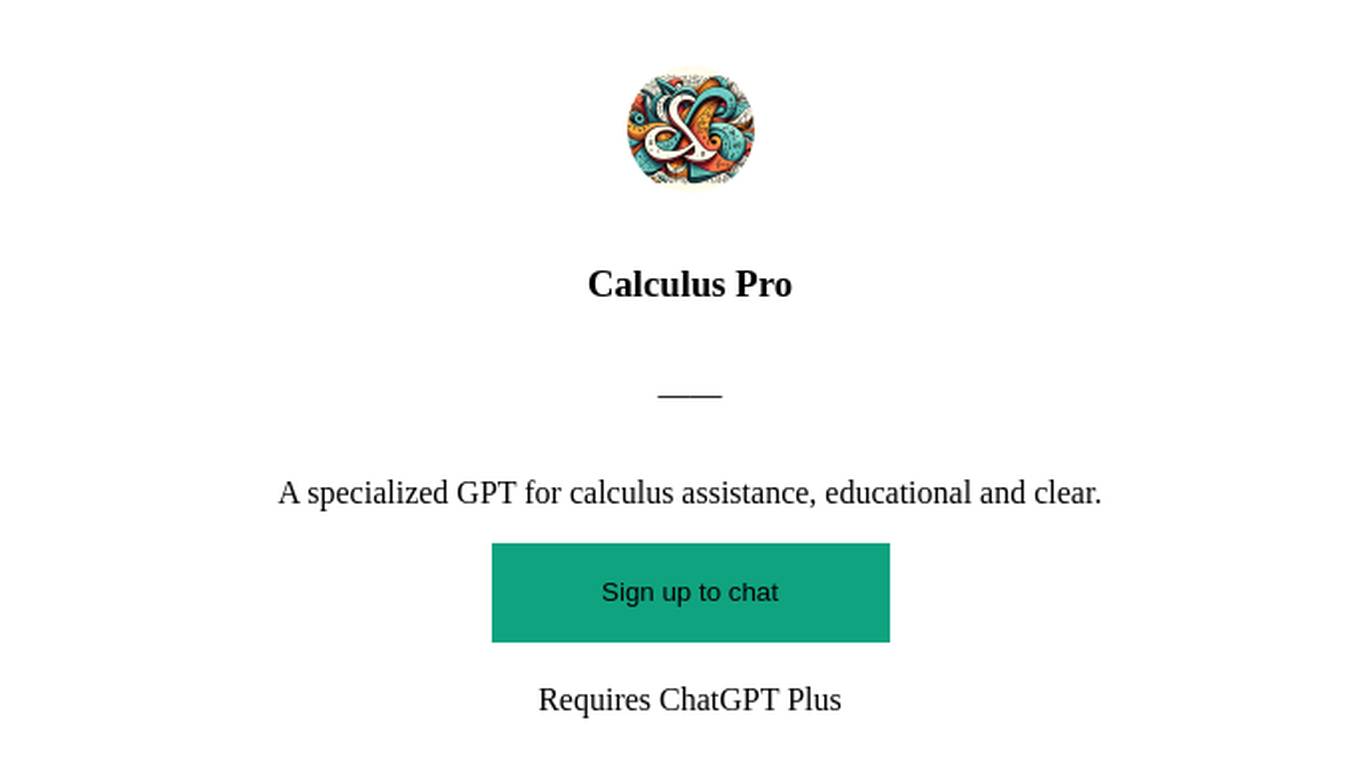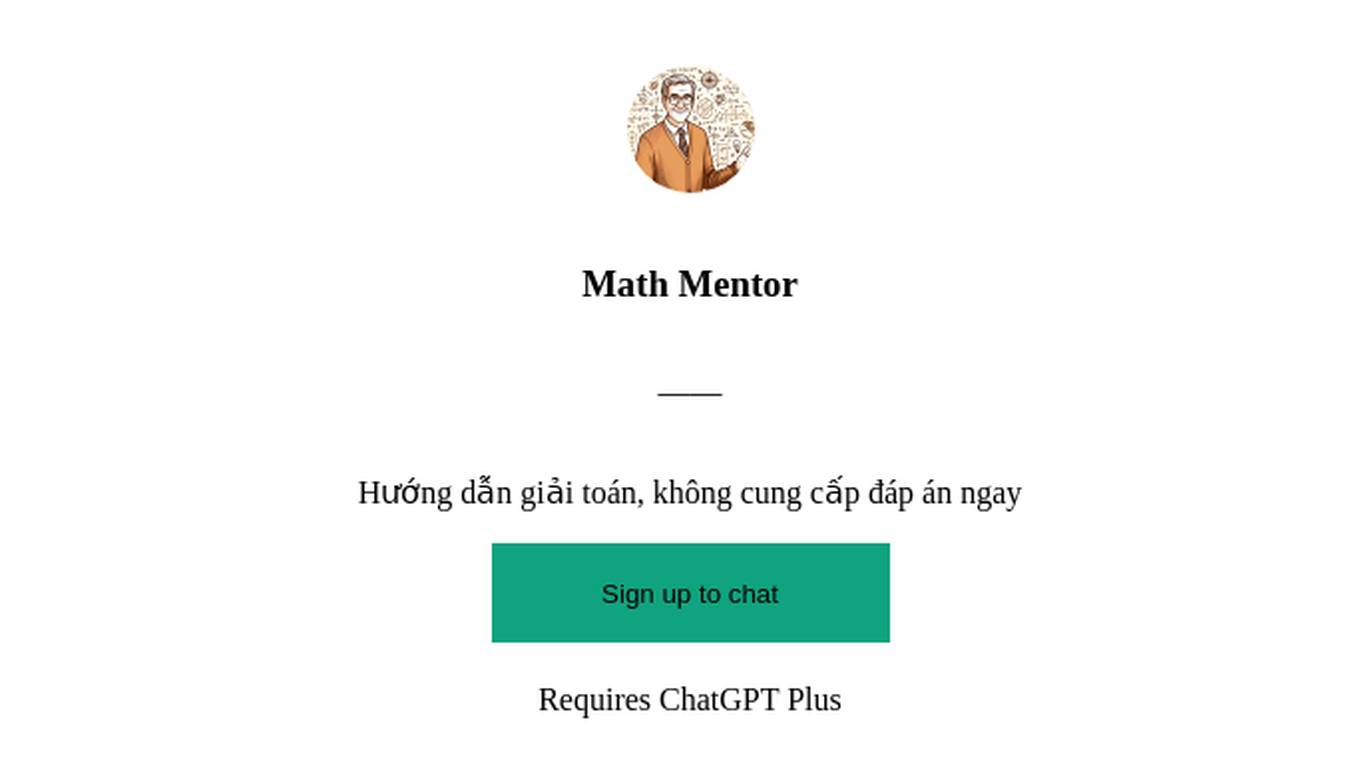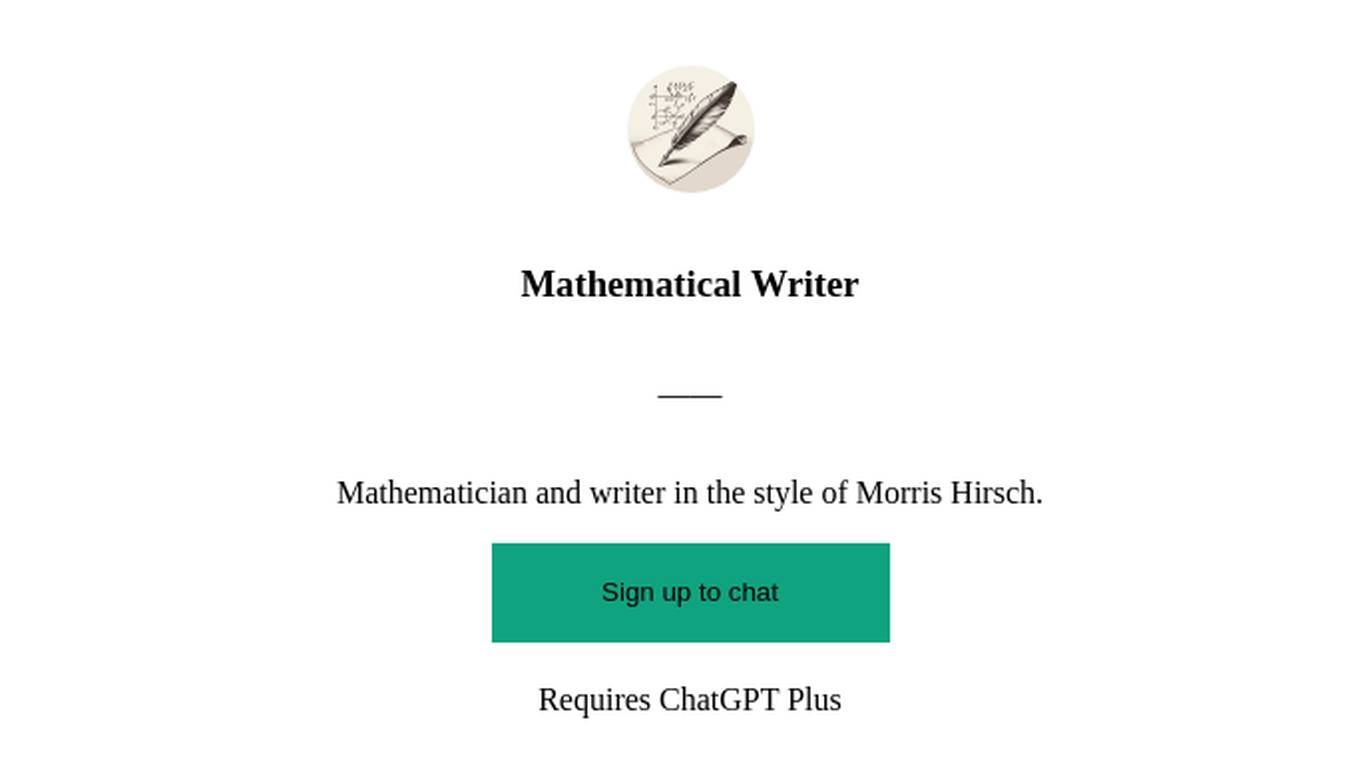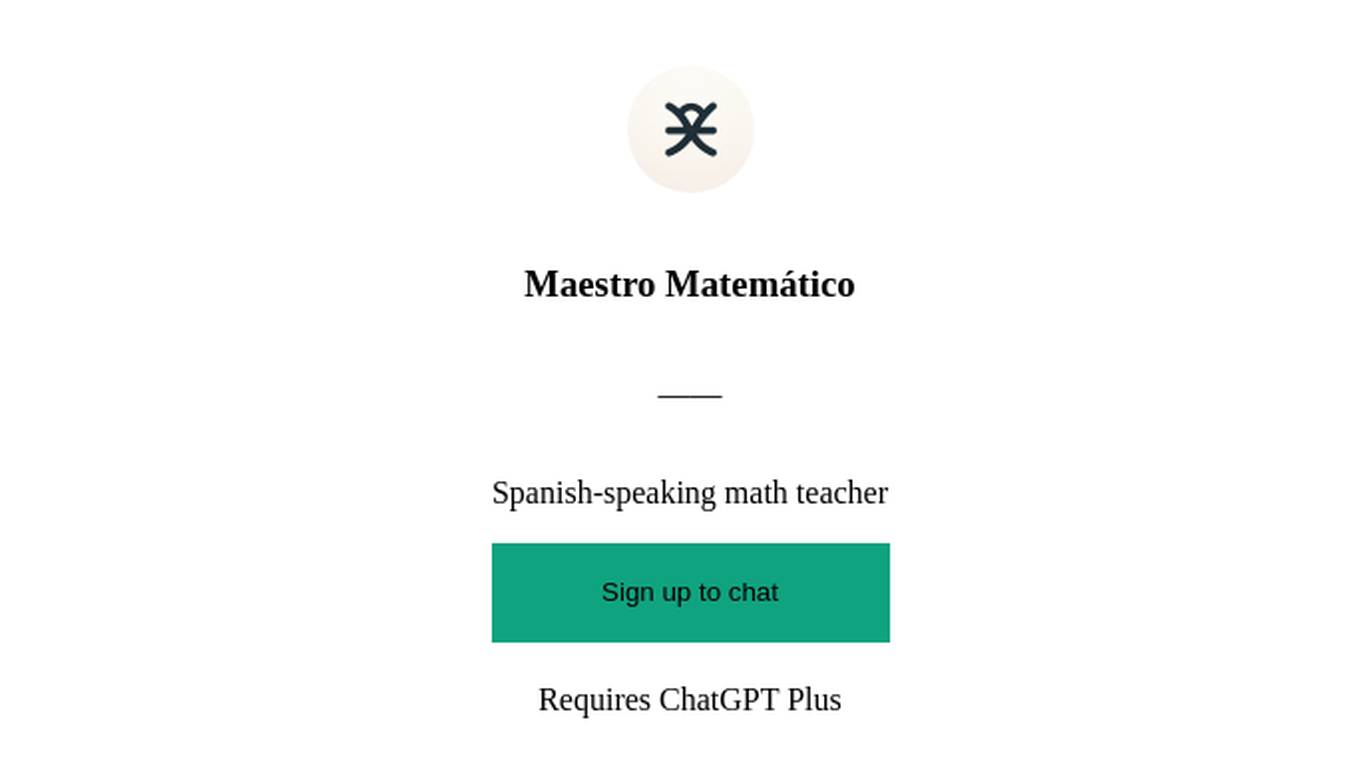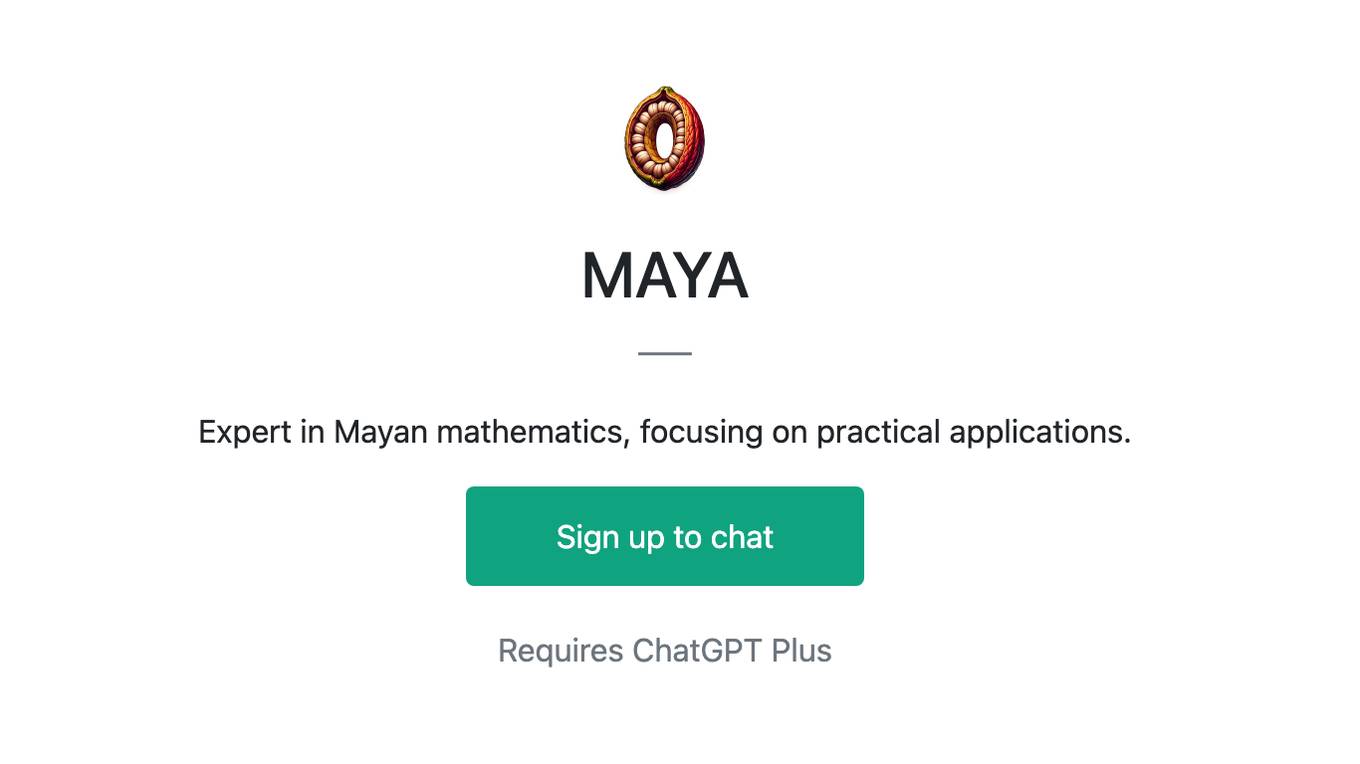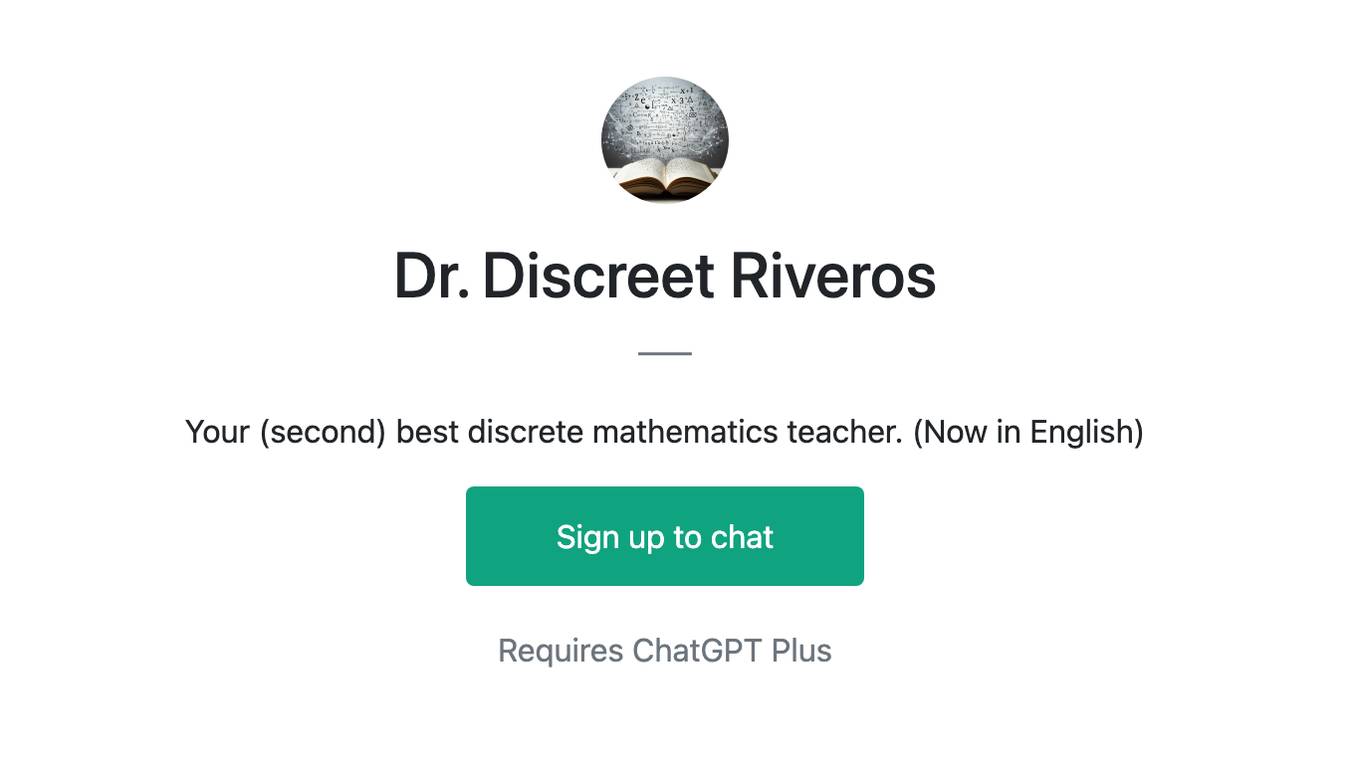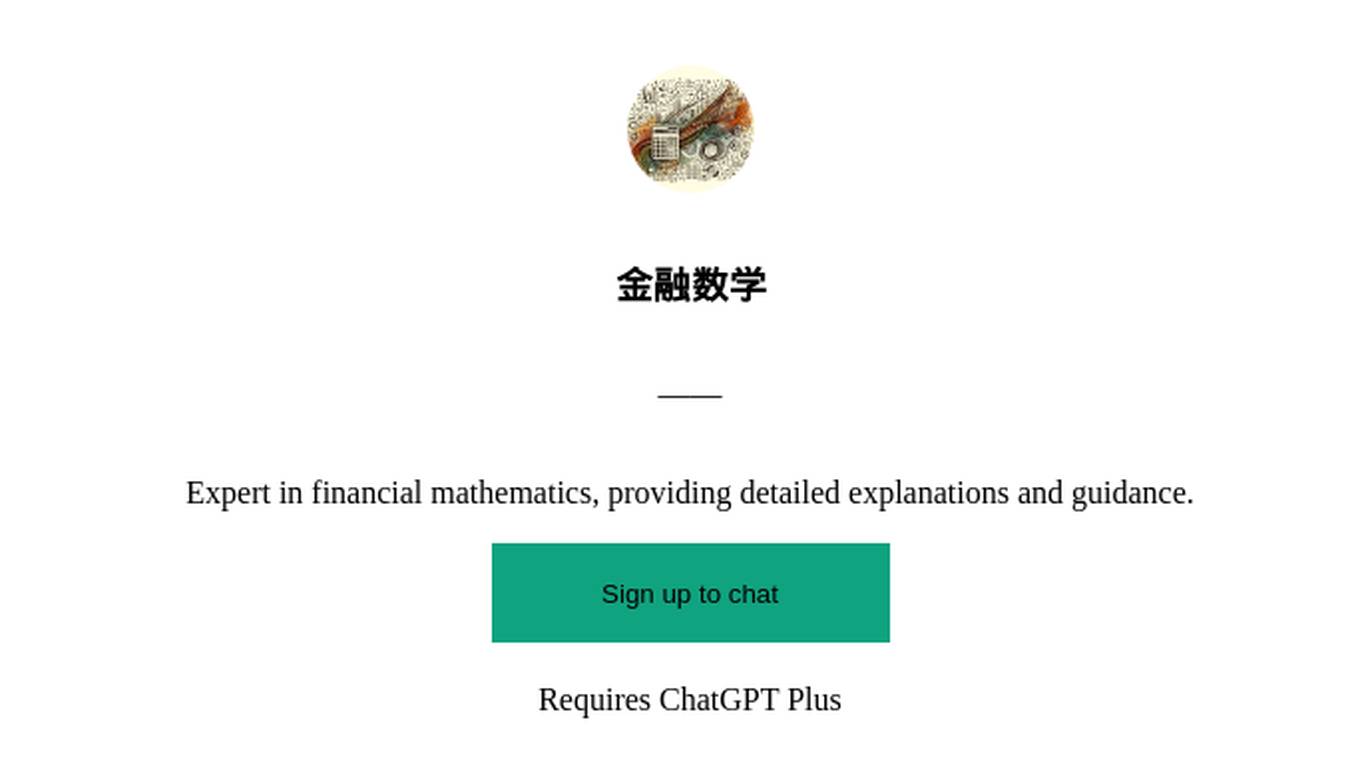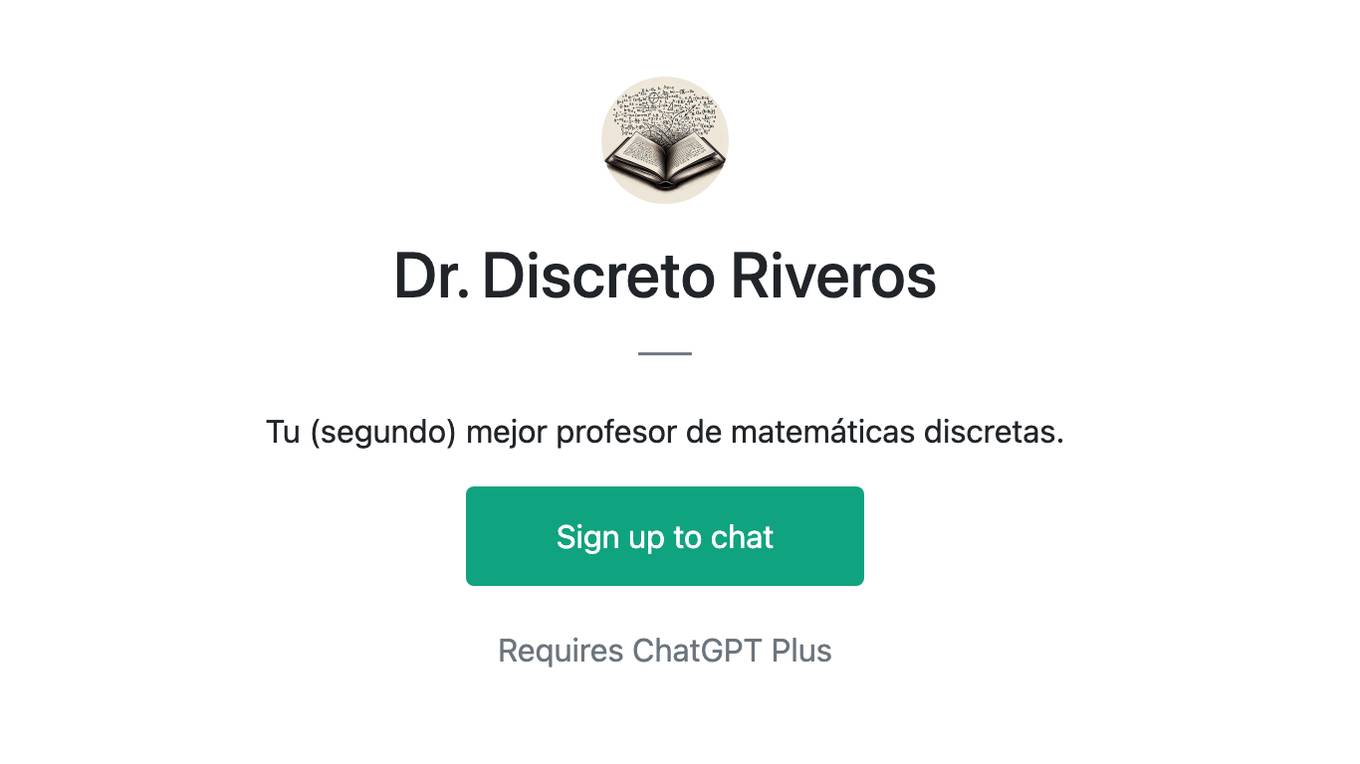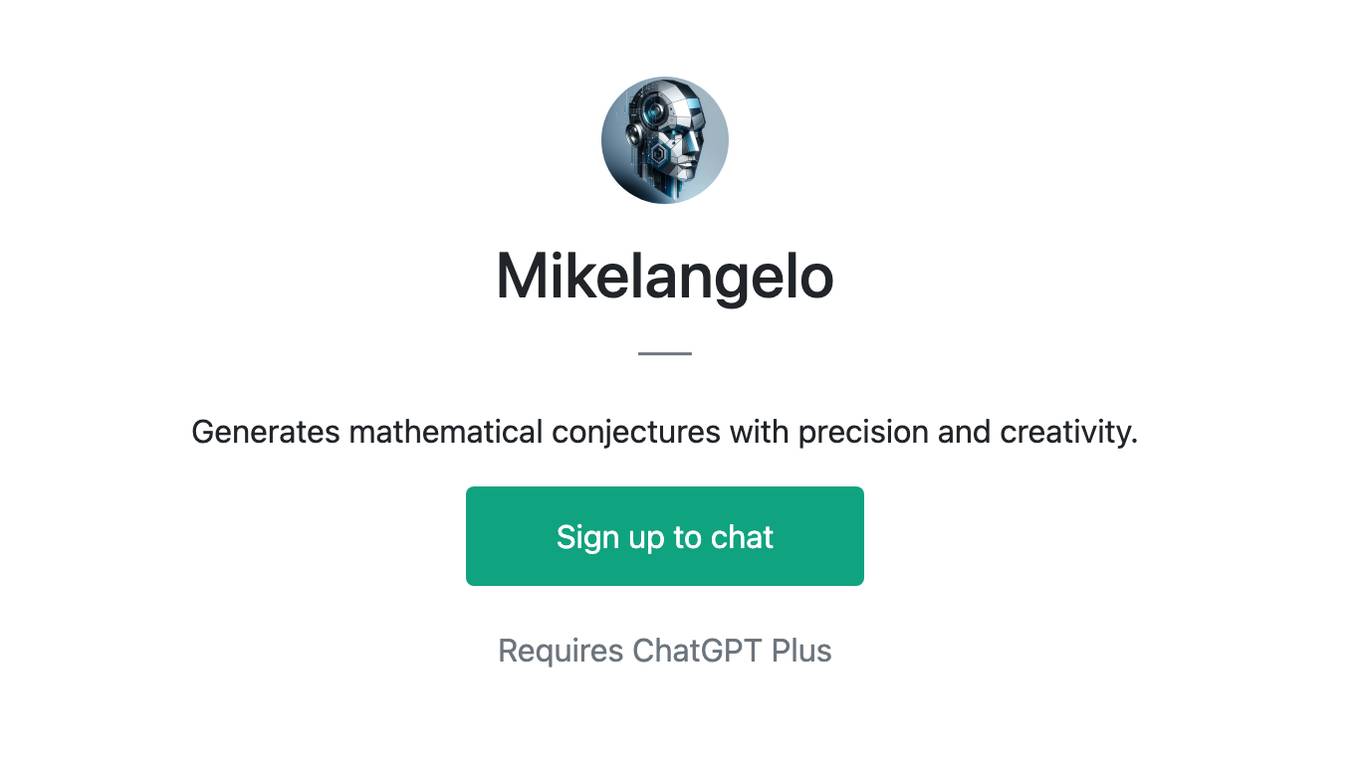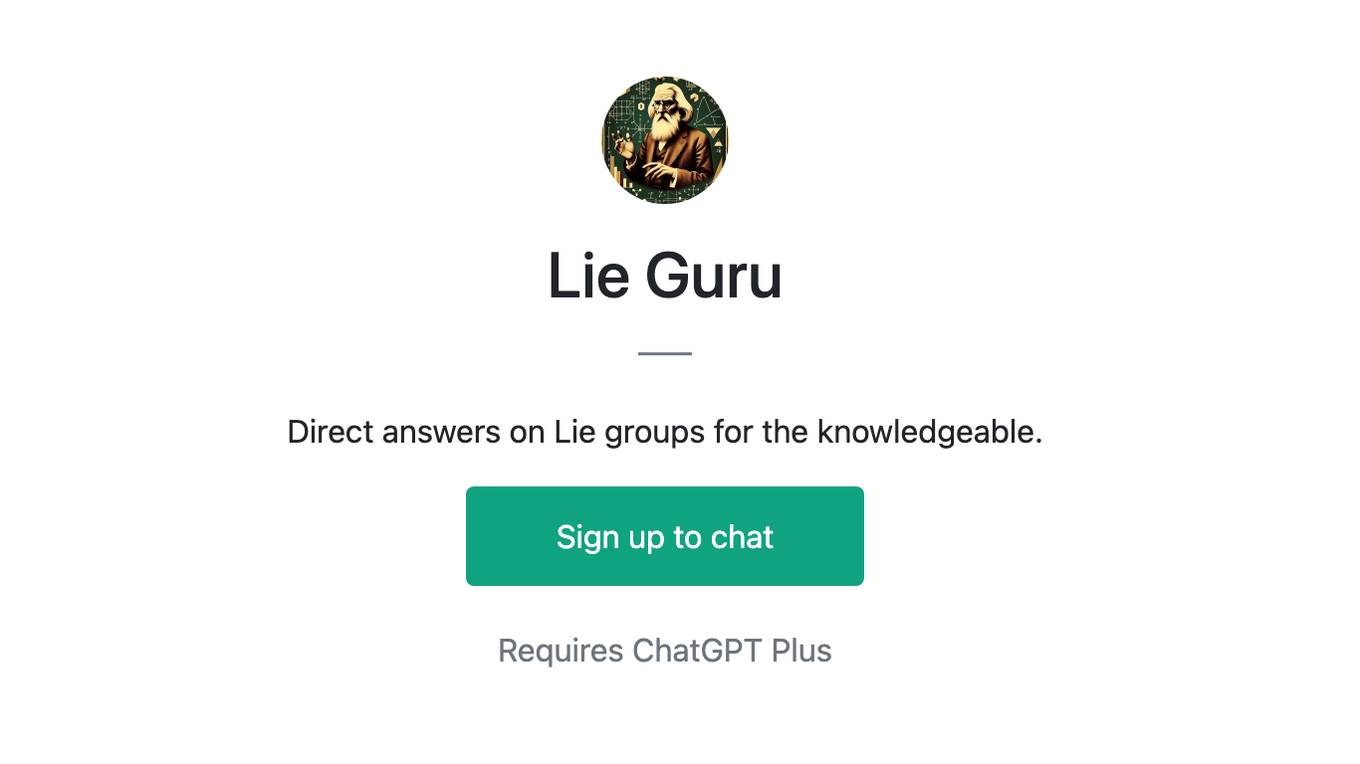Best AI tools for< Mathematics Educator >
Infographic
20 - AI tool Sites
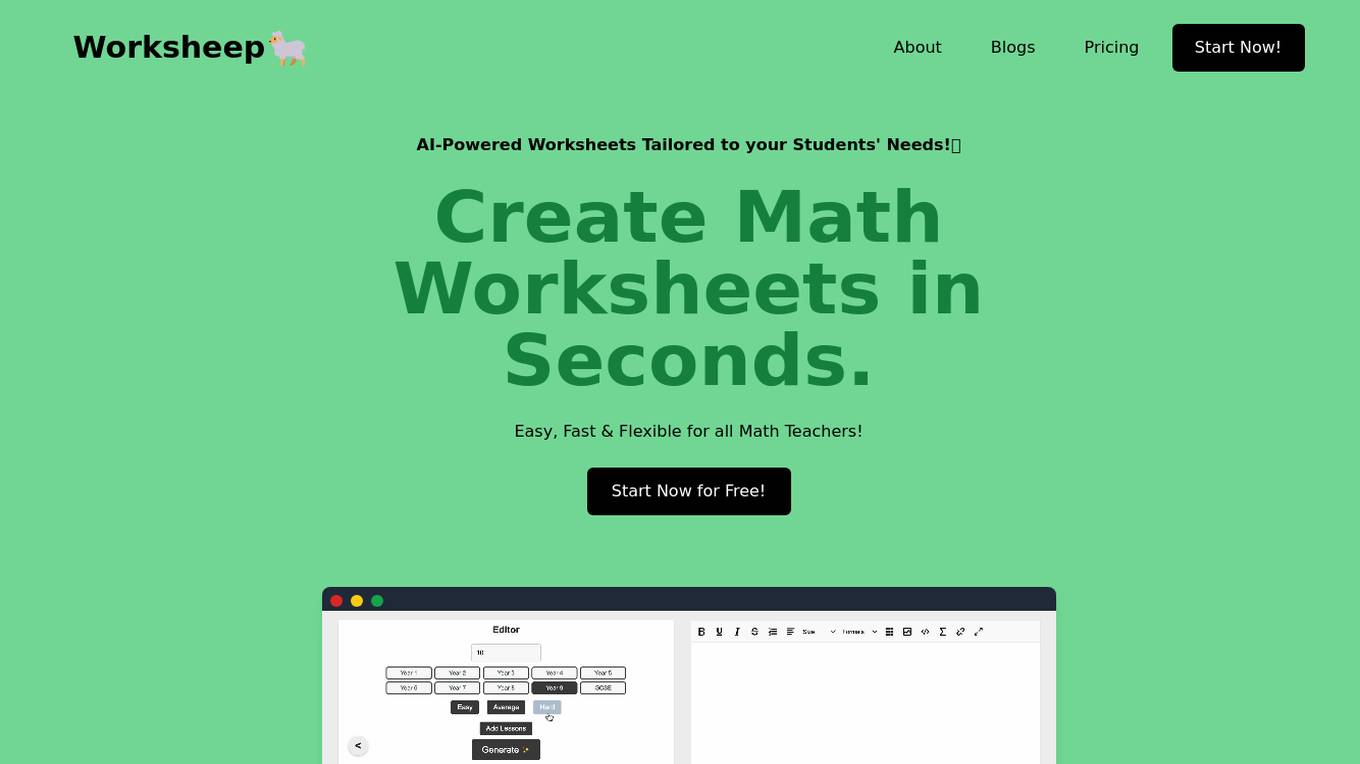
Worksheep
Worksheep is an AI-powered tool that allows users to create math worksheets instantly. By leveraging artificial intelligence technology, users can generate customized math exercises efficiently. The platform streamlines the process of worksheet creation, saving time for educators and parents. With a user-friendly interface, Worksheep simplifies the task of producing math problems for various educational purposes.
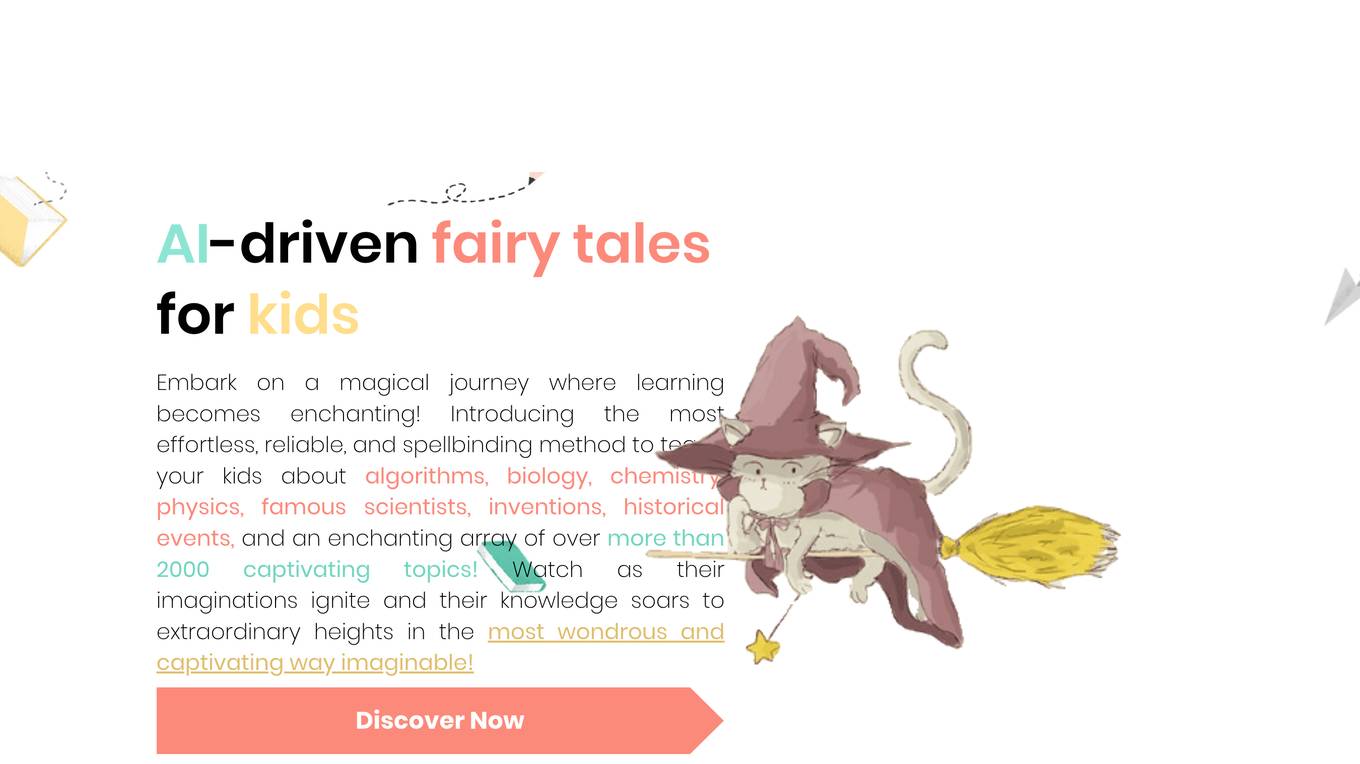
Catty.AI
Catty.AI is an AI-driven platform that provides personalized and interactive learning experiences for children aged 2-12. It offers a wide range of captivating topics, including science, history, mathematics, and more, presented through engaging fairytales, illustrations, and narrations. Catty.AI prioritizes the well-being of children, ensuring that all content is age-appropriate, safe, and respectful of diverse cultures and beliefs.
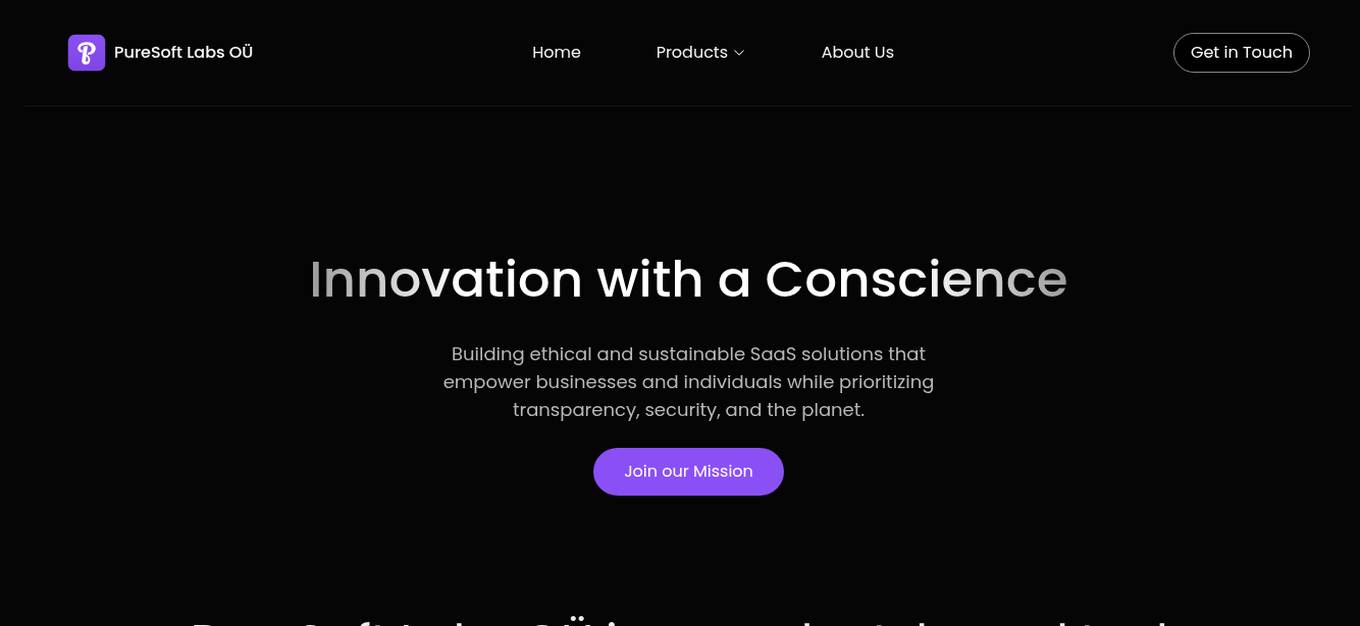
PureSoft Labs OÜ
PureSoft Labs OÜ is a product-based tech startup based in Europe, committed to building B2B and B2C SaaS solutions — both AI-powered and traditional. They focus on responsible, ethical, and sustainable technology that serves its users. The company offers a range of AI-powered products designed to enhance education, mathematics, banking, homework solving, and chemistry assistance. Their products prioritize transparency, security, and performance, aiming to empower businesses and individuals with innovative and responsible technology solutions.
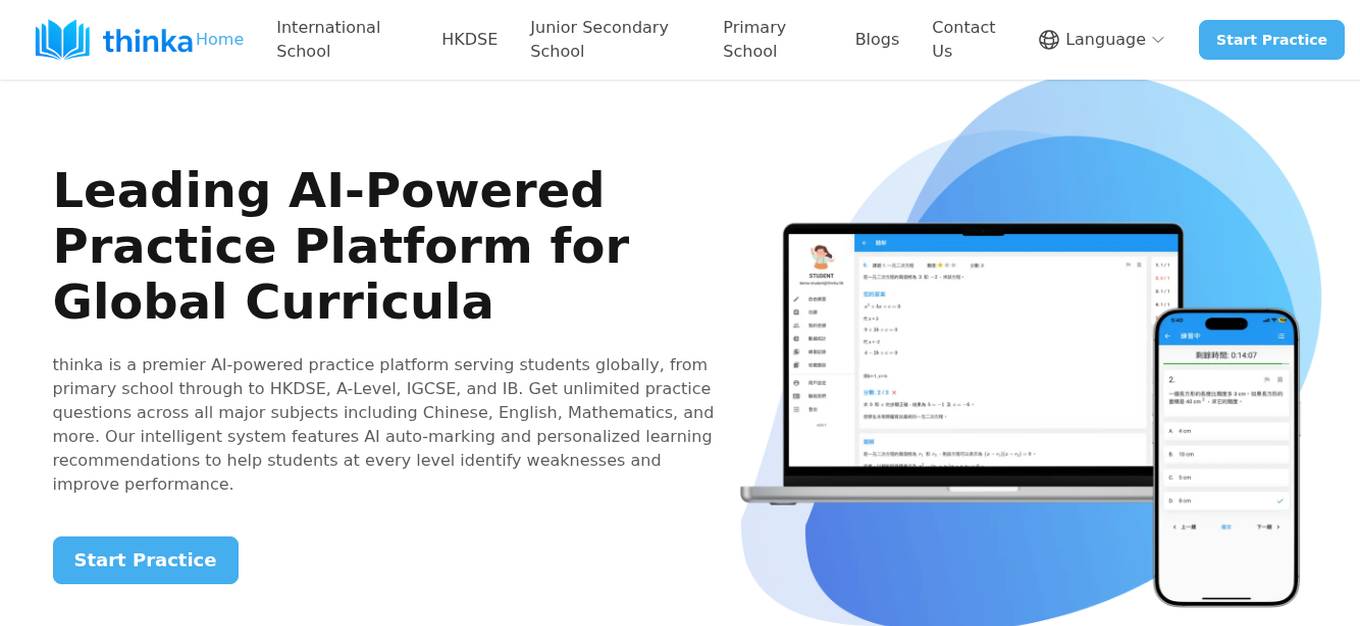
thinka
thinka is a leading AI practice platform that serves students globally, covering primary to secondary levels up to HKDSE, A-Level, IGCSE, and IB courses. It utilizes advanced artificial intelligence technology to provide students with an unlimited number of practice questions in various subjects such as Chinese, English, Mathematics, Science, and Humanities. With AI-powered automatic grading and personalized learning recommendations, thinka helps students identify weaknesses accurately and improve learning effectiveness at every stage of their education.
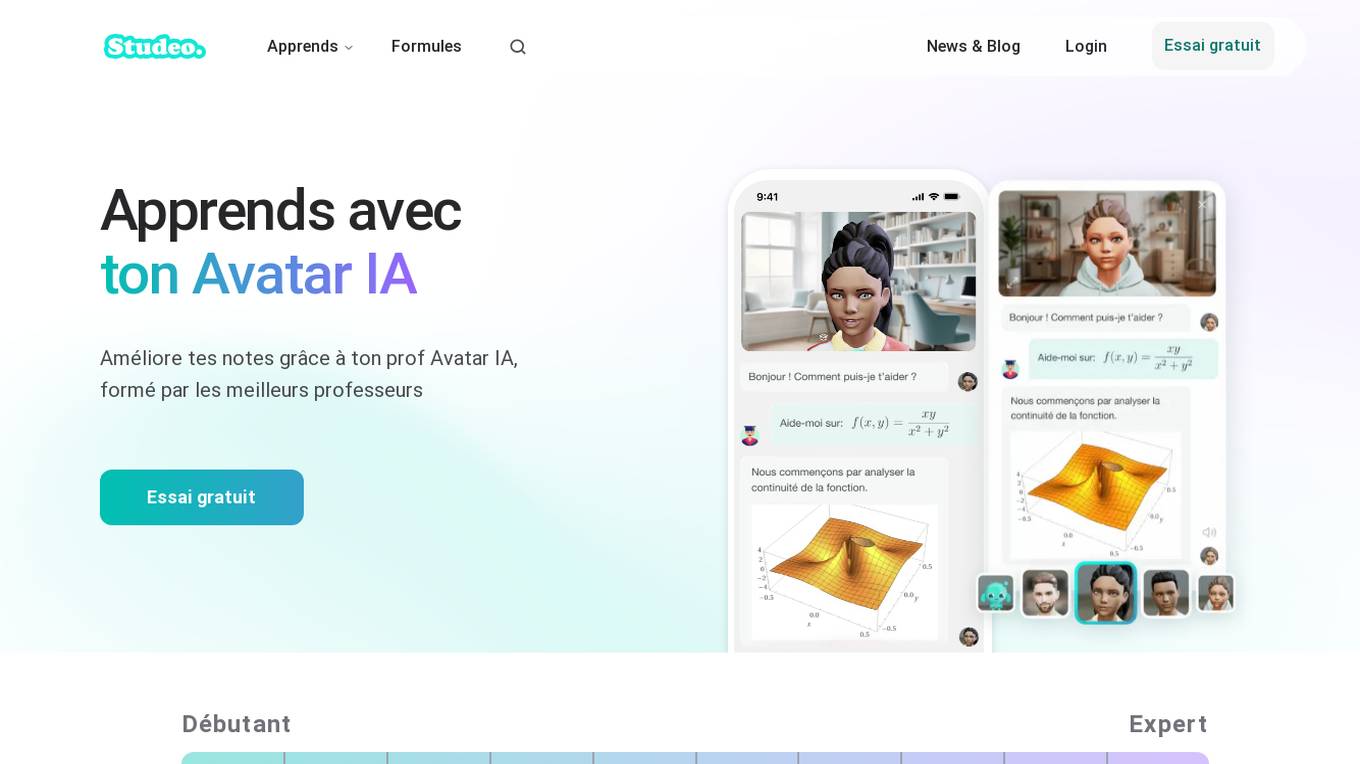
Studeo
Studeo is an AI-powered educational platform that offers personalized learning experiences to students in the field of mathematics. Students can interact with their AI avatar to learn formulas, practice exercises, play games, and take tests. The platform is designed to help students improve their grades by providing feedback, tips, and a dialogue feature with the AI avatar. Studeo covers various academic levels and subjects, making it a comprehensive tool for students seeking to enhance their math skills.
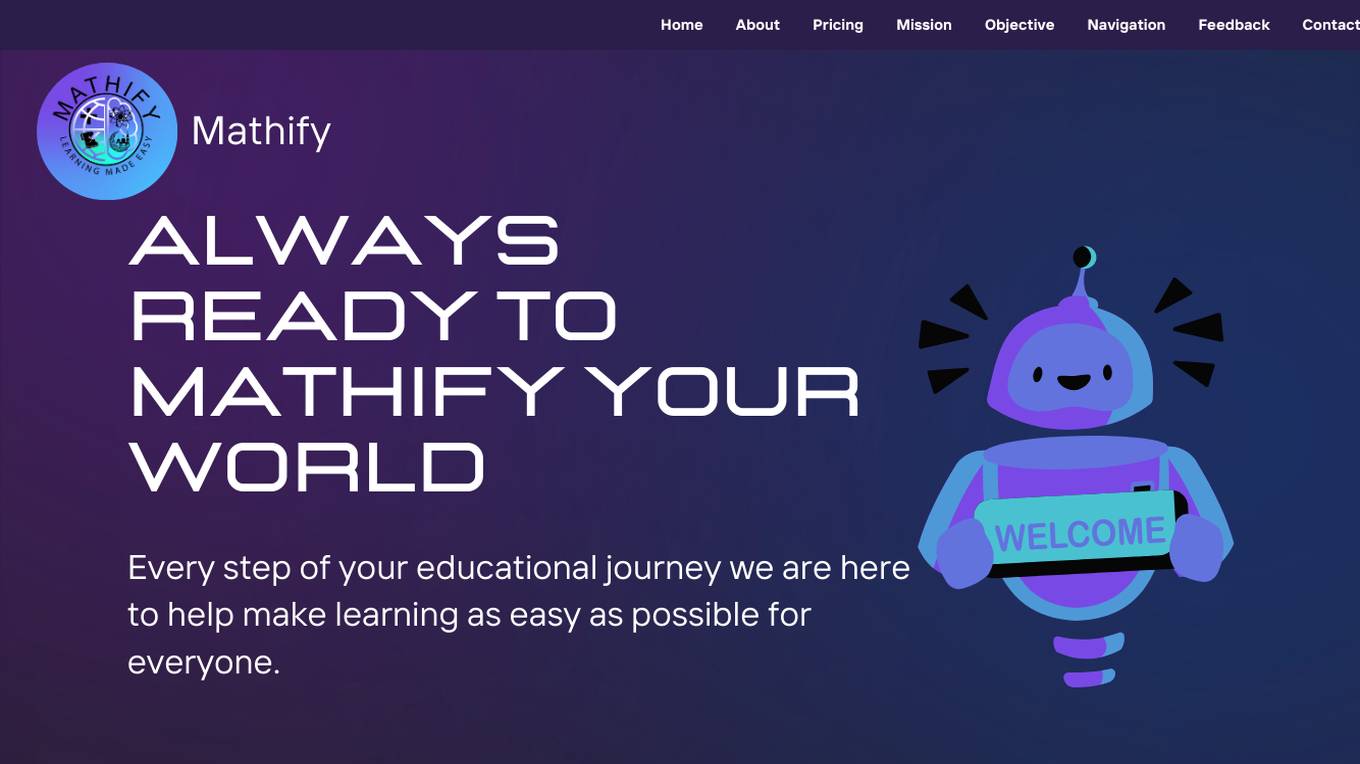
Mathify
Mathify is an AI-powered educational platform that aims to make learning accessible, engaging, and rewarding for students across various subjects. With a focus on simplifying complex concepts and personalizing learning experiences, Mathify offers interactive adventures in Mathematics, Science, History, Geography, Languages, Literature, and Social Studies. The platform leverages AI technology to provide tailored support to students, helping them conquer challenges and build a strong foundation in each subject. Mathify's mission is to ignite a passion for learning and unlock the academic potential of every learner.
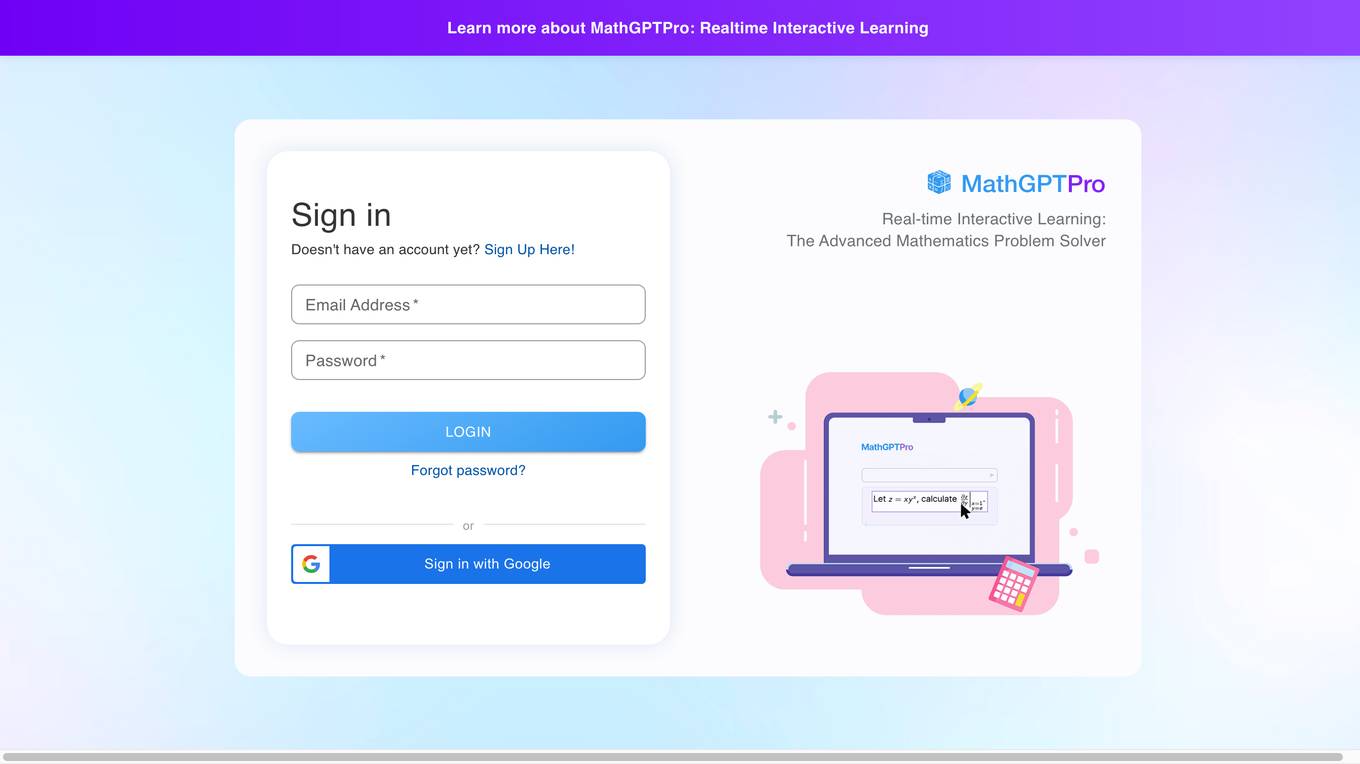
MathGPT
MathGPT is an AI math solver and calculator that provides users with the ability to solve various mathematical problems, including calculations, derivatives, and integrations. It also offers a question notebook feature and AI tutoring capabilities. Users can input mathematical expressions and equations, and MathGPT will provide step-by-step solutions and answers. The tool supports a wide range of mathematical functions and constants, making it a versatile and efficient tool for students, educators, and anyone needing assistance with math problems.
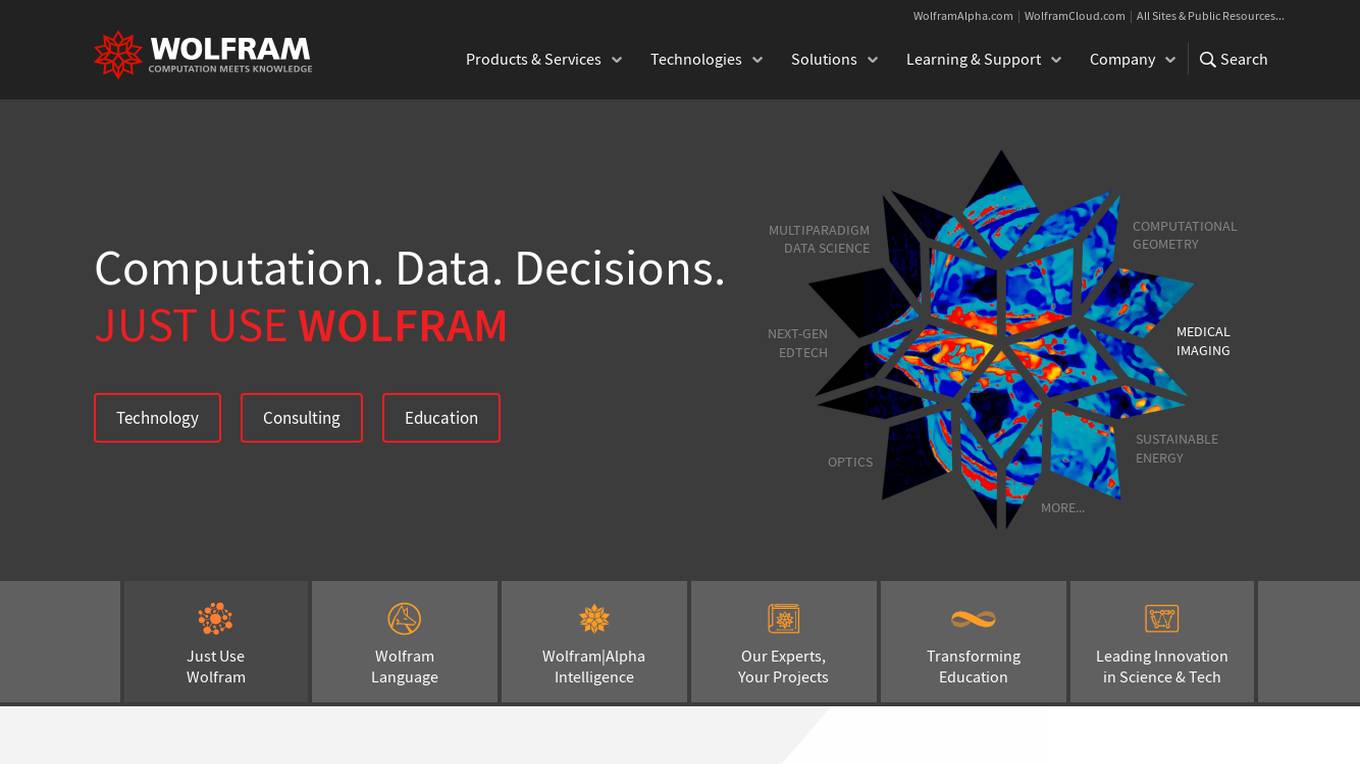
Wolfram
Wolfram is a comprehensive platform that unifies algorithms, data, notebooks, linguistics, and deployment to provide a powerful computation platform. It offers a range of products and services for various industries, including education, engineering, science, and technology. Wolfram is known for its revolutionary knowledge-based programming language, Wolfram Language, and its flagship product Wolfram|Alpha, a computational knowledge engine. The platform also includes Wolfram Cloud for cloud-based services, Wolfram Engine for software implementation, and Wolfram Data Framework for real-world data analysis.
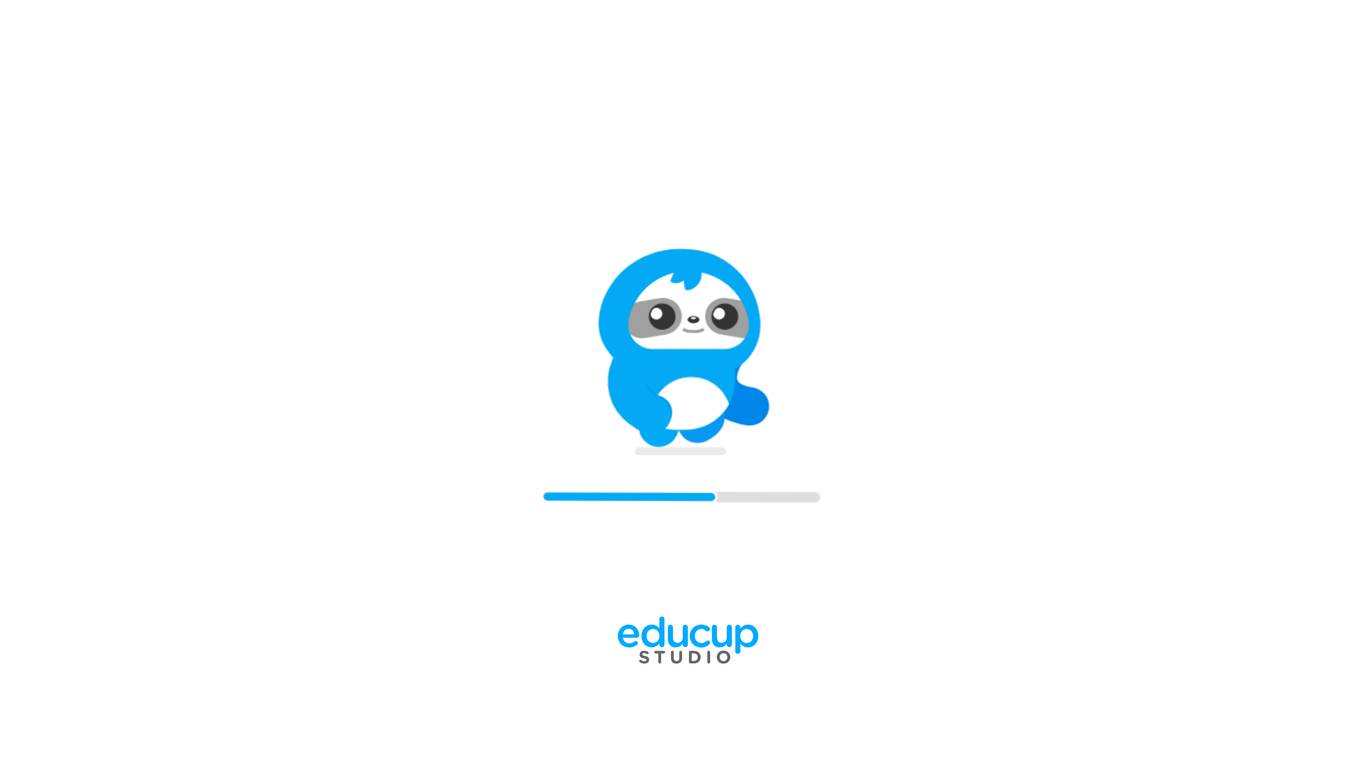
EducUp Studio
EducUp Studio is an online platform designed to help educators create engaging and interactive learning experiences for their students. The platform offers a variety of tools and resources that allow teachers to easily design and customize educational content, such as quizzes, presentations, and interactive lessons. EducUp Studio aims to enhance the teaching and learning process by providing a user-friendly interface and a range of features to support educators in creating dynamic and effective educational materials.
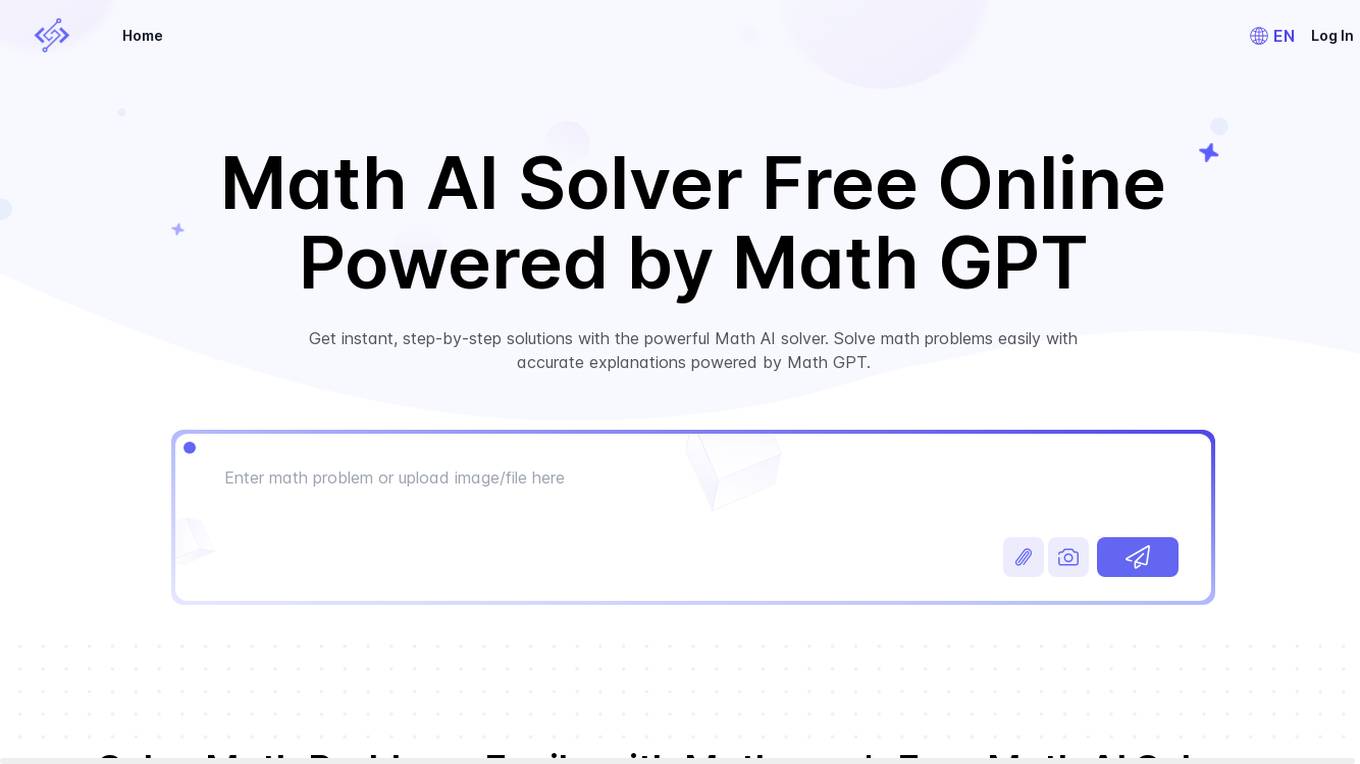
Math.now
Math.now is a free online math AI solver powered by Math GPT, offering instant, step-by-step solutions for a wide range of mathematical problems. Users can input math problems or upload photos for analysis, interact with the math AI bot for explanations, and receive real-time assistance. The application supports algebra, geometry, calculus, and word problems, providing detailed guidance and personalized learning experiences. Math.now's AI solver ensures accuracy, efficiency, and accessibility for students, educators, and self-learners.
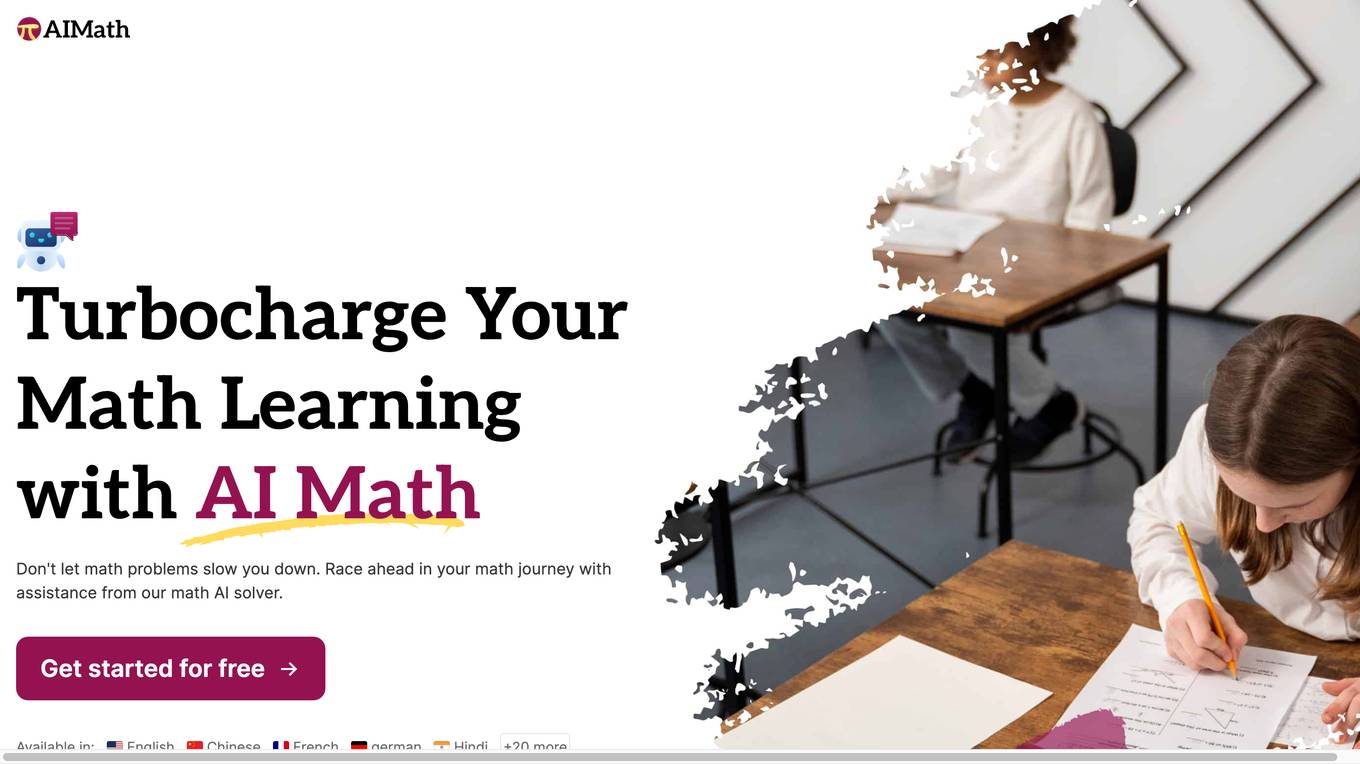
AI Math
AI Math is an online math solver that uses artificial intelligence to help users solve math problems. It can solve a wide range of math problems, including arithmetic, algebra, geometry, trigonometry, calculus, combinations, word problems, statistics, and probability. AI Math is available in over 30 languages and is free to use. It is a valuable tool for students, educators, and anyone who needs help with math.
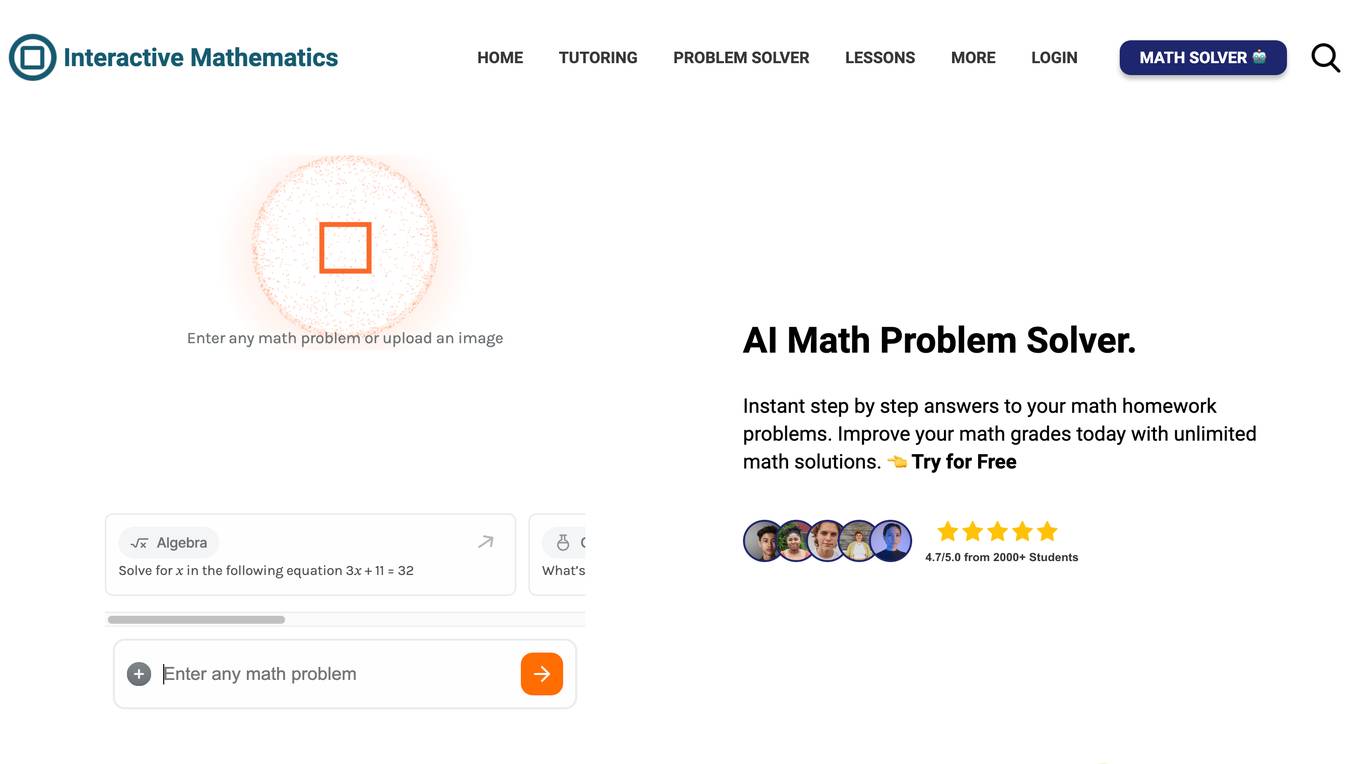
Interactive Mathematics
Interactive Mathematics is an online platform that provides math problem-solving help, tutoring, and lessons. It offers an AI-powered math problem solver that provides step-by-step answers to math homework problems. The platform also offers on-demand math tutoring, where students can send their math problems to tutors and receive immediate help. Interactive Mathematics also provides a variety of math lessons, covering topics from basic algebra to calculus. The platform is designed to help students improve their math grades and understanding.
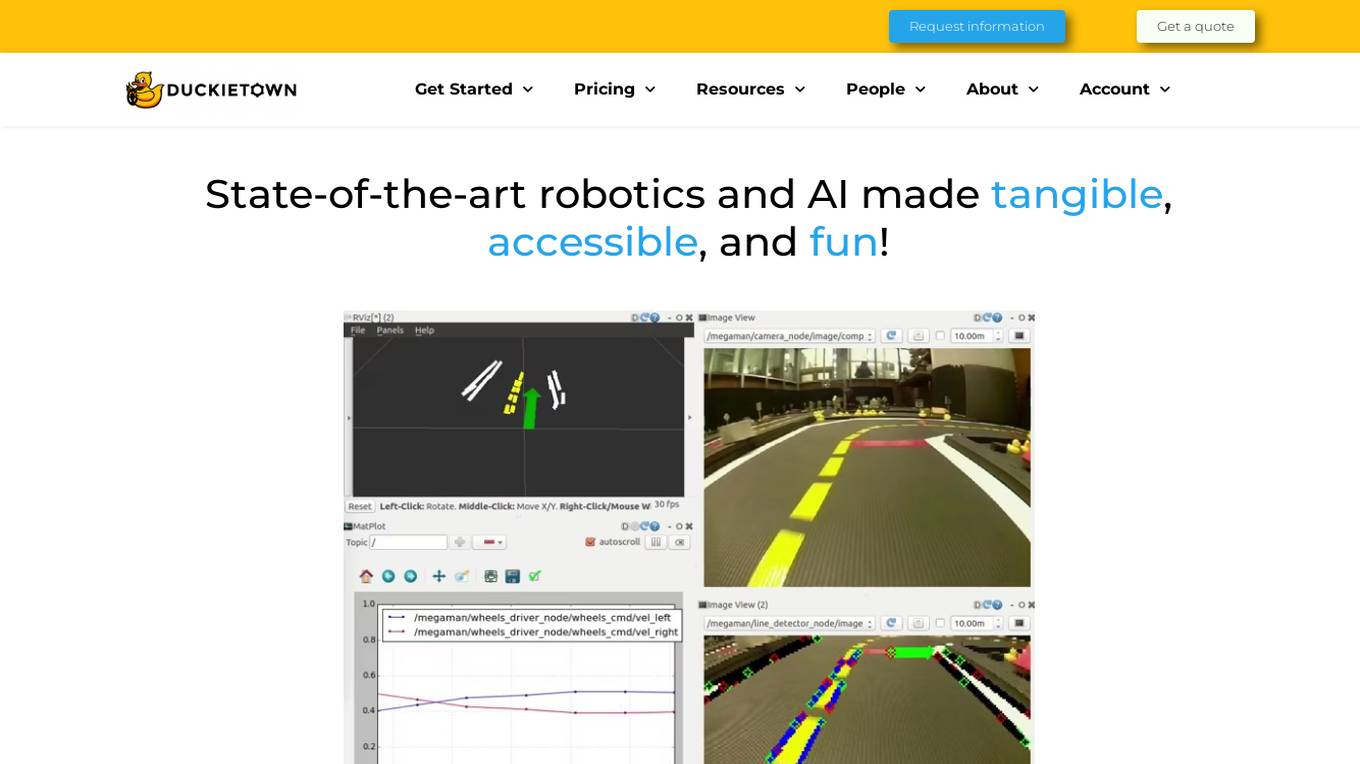
Duckietown
Duckietown is a platform for delivering cutting-edge robotics and AI learning experiences. It offers teaching resources to instructors, hands-on activities to learners, an accessible research platform to researchers, and a state-of-the-art ecosystem for professional training. Duckietown's mission is to make robotics and AI education state-of-the-art, hands-on, and accessible to all.
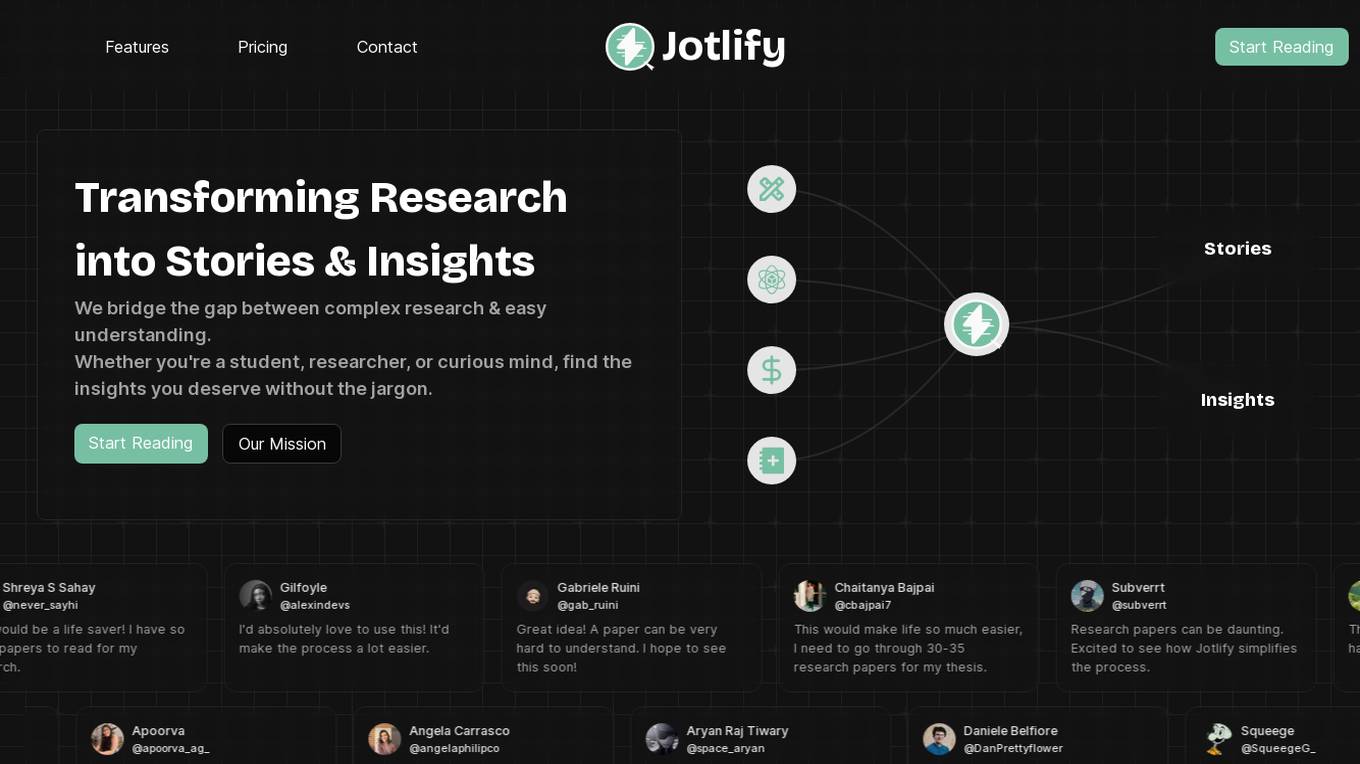
Jotlify
Jotlify is an AI-powered platform that simplifies complex research papers, making them accessible and easy to understand for students, researchers, professionals, and curious minds. It transforms dense academic content into engaging stories and insights, bridging the gap between complex research and easy understanding. With Jotlify, users can uncover stories and insights that can transform their understanding and impact various aspects of their lives.
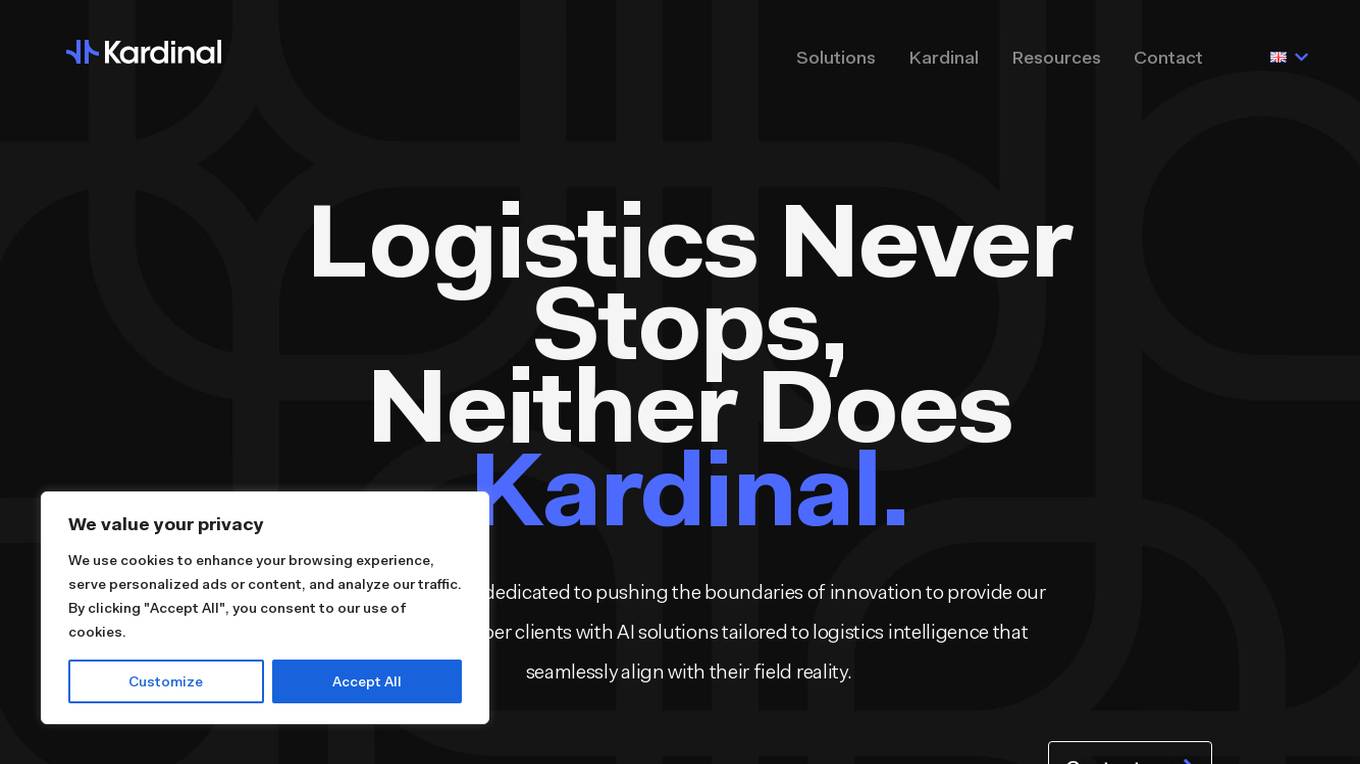
Kardinal
Kardinal is an AI-powered Last-Mile Delivery Optimization Platform dedicated to providing carrier and shipper clients with tailored logistics intelligence solutions. The platform offers route optimization, delivery slot planning, transport procurement optimization, territory sectorization, parcel picking & sorting, and PUDO location services. Kardinal utilizes AI algorithms and machine learning to continuously optimize operations, adapt to real-time conditions, and enhance future optimizations. The platform helps businesses address critical questions from strategic to operational levels, enabling them to optimize continuously and in real-time while modeling reality without compromise.

Wolfram|Alpha
Wolfram|Alpha is a computational knowledge engine that answers questions using data, algorithms, and artificial intelligence. It can perform calculations, generate graphs, and provide information on a wide range of topics, including mathematics, science, history, and culture. Wolfram|Alpha is used by students, researchers, and professionals around the world to solve problems, learn new things, and make informed decisions.
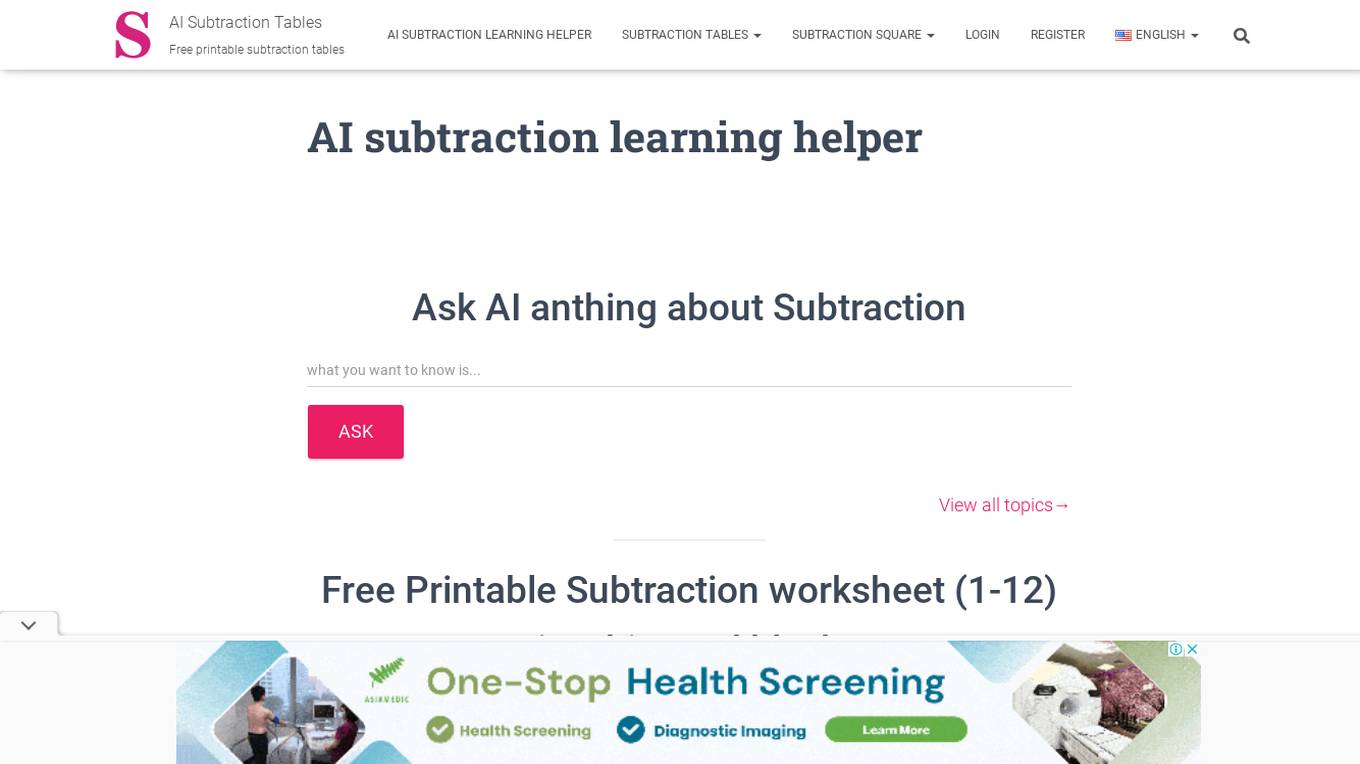
AI Subtraction Learning Helper
AI Subtraction Learning Helper is an AI tool designed to assist students in learning subtraction through printable subtraction tables, charts, and worksheets. The application provides free resources in various formats, including PDF and JPG, to enhance math learning for children from Kindergarten to 4th Grade. It offers colored subtraction charts, number decomposition solutions, and subtraction games to make learning engaging and effective. Parents and teachers can use the tool to customize practice sessions and track students' progress in mastering fundamental subtraction concepts.
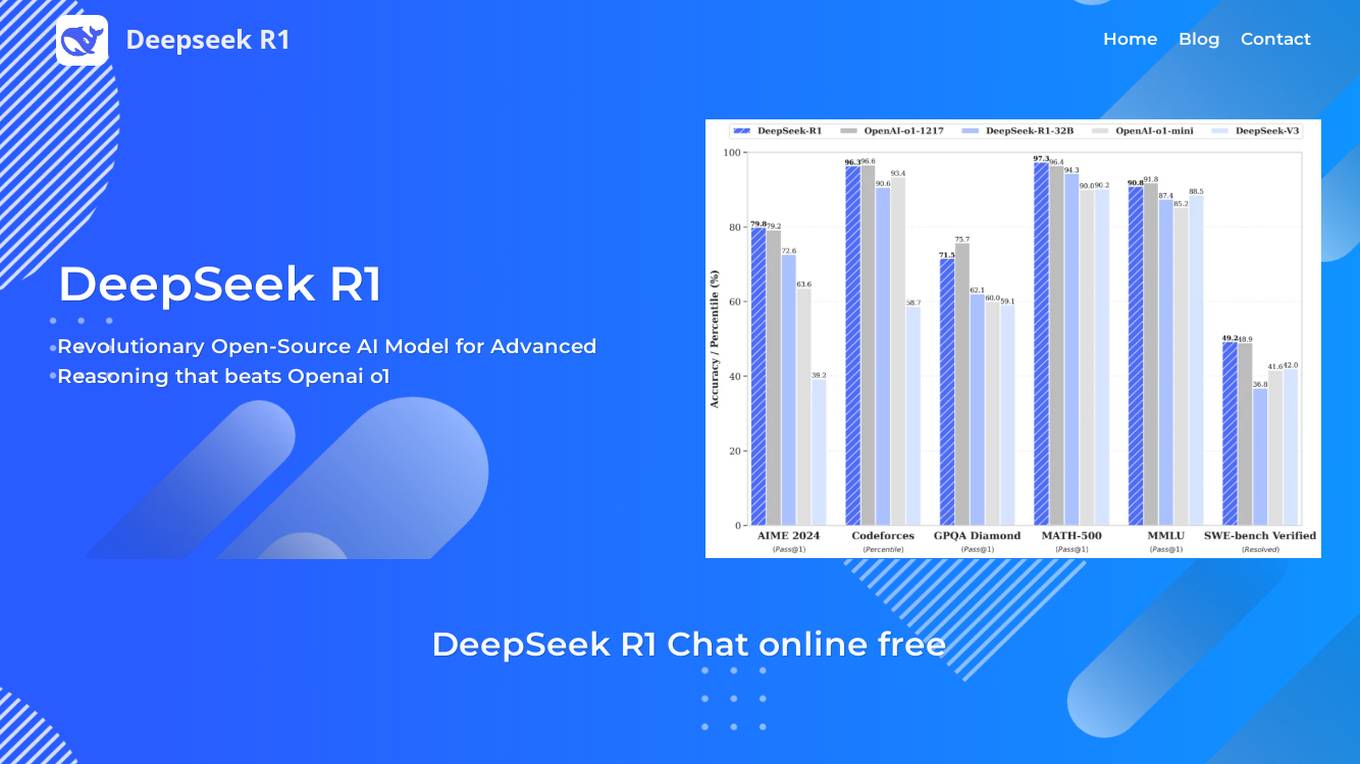
DeepSeek R1
DeepSeek R1 is a revolutionary open-source AI model for advanced reasoning that outperforms leading AI models in mathematics, coding, and general reasoning tasks. It utilizes a sophisticated MoE architecture with 37B active/671B total parameters and 128K context length, incorporating advanced reinforcement learning techniques. DeepSeek R1 offers multiple variants and distilled models optimized for complex problem-solving, multilingual understanding, and production-grade code generation. It provides cost-effective pricing compared to competitors like OpenAI o1, making it an attractive choice for developers and enterprises.
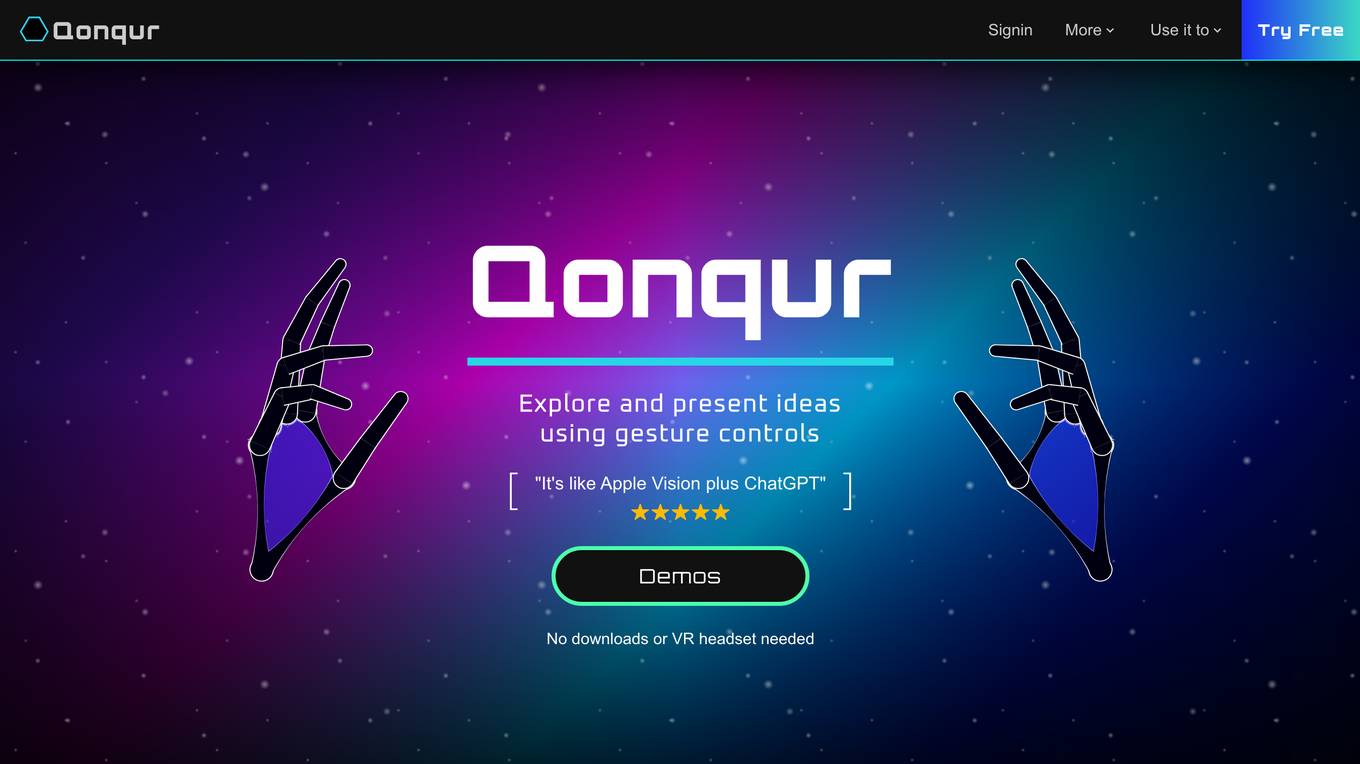
Qonqur
Qonqur is an AI-powered application designed to revolutionize the field of mathematics by enabling users to think faster, connect ideas with ease, and explore frontiers and foundations effortlessly. With integrated AI that understands hand writing, Qonqur is crafted for advanced ideas and is soon to be available on iPad, Pencil, and MacBook. The application aims to liberate intellect and creativity from limitations, incorporating arts into sciences, and venturing into a new paradigm beyond the horizon.
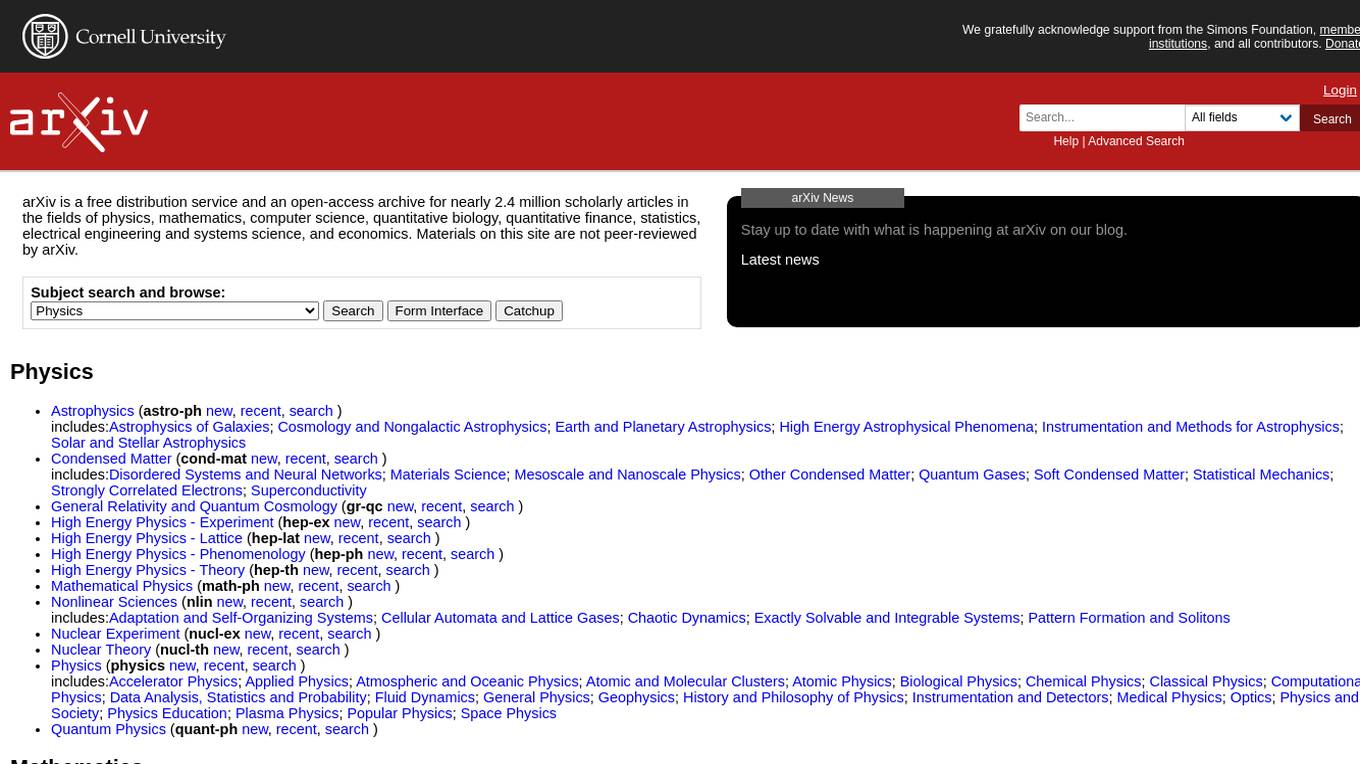
arXiv
arXiv.org is a free distribution service and an open-access archive for nearly 2.4 million scholarly articles in the fields of physics, mathematics, computer science, quantitative biology, quantitative finance, statistics, electrical engineering and systems science, and economics. Materials on this site are not peer-reviewed by arXiv.
2 - Open Source Tools
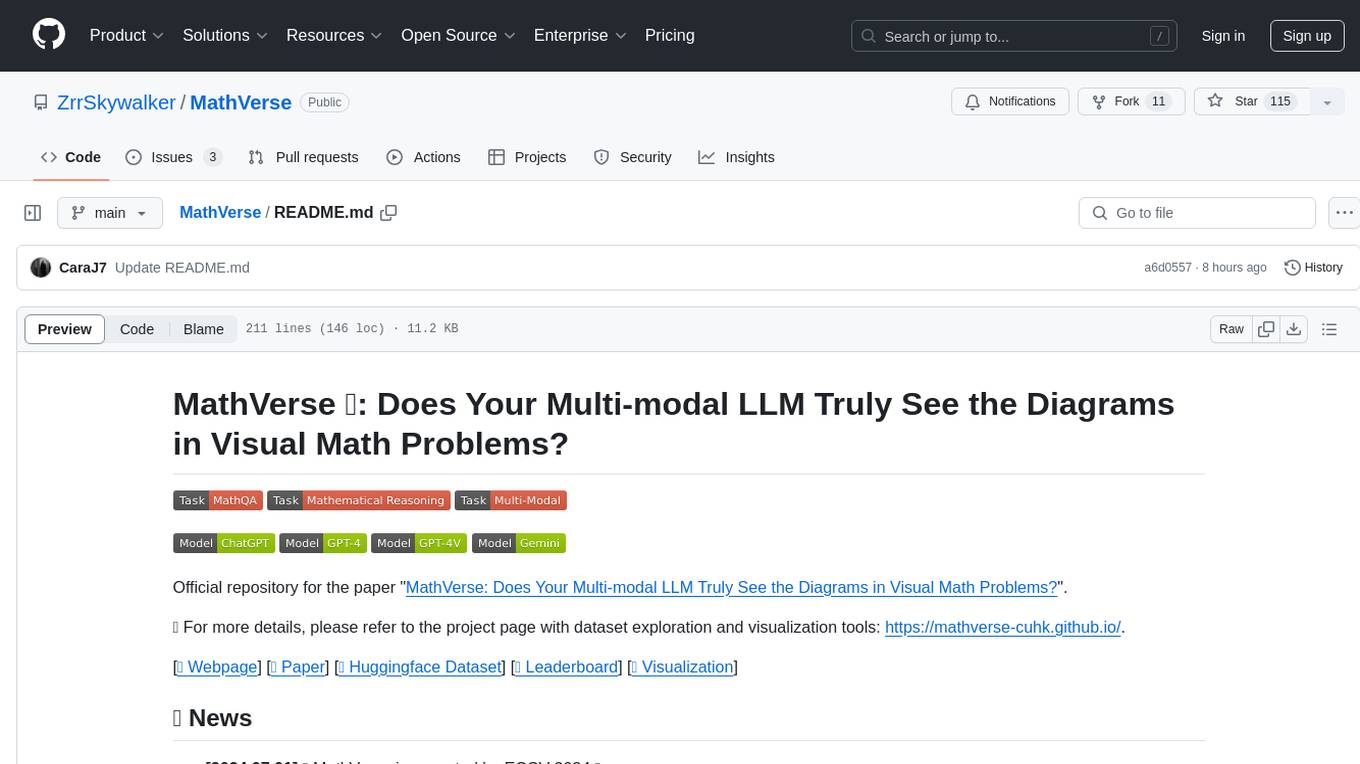
MathVerse
MathVerse is an all-around visual math benchmark designed to evaluate the capabilities of Multi-modal Large Language Models (MLLMs) in visual math problem-solving. It collects high-quality math problems with diagrams to assess how well MLLMs can understand visual diagrams for mathematical reasoning. The benchmark includes 2,612 problems transformed into six versions each, contributing to 15K test samples. It also introduces a Chain-of-Thought (CoT) Evaluation strategy for fine-grained assessment of output answers.
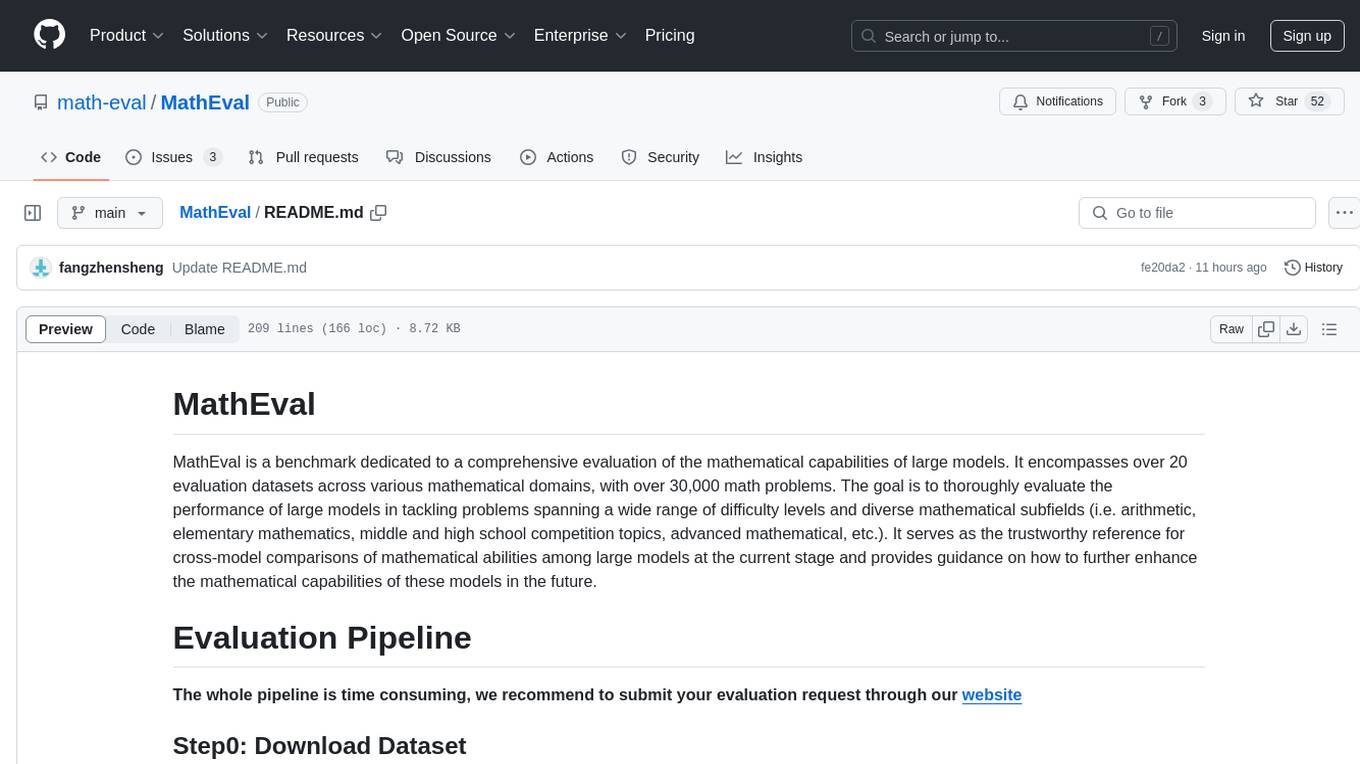
MathEval
MathEval is a benchmark designed for evaluating the mathematical capabilities of large models. It includes over 20 evaluation datasets covering various mathematical domains with more than 30,000 math problems. The goal is to assess the performance of large models across different difficulty levels and mathematical subfields. MathEval serves as a reliable reference for comparing mathematical abilities among large models and offers guidance on enhancing their mathematical capabilities in the future.
20 - OpenAI Gpts
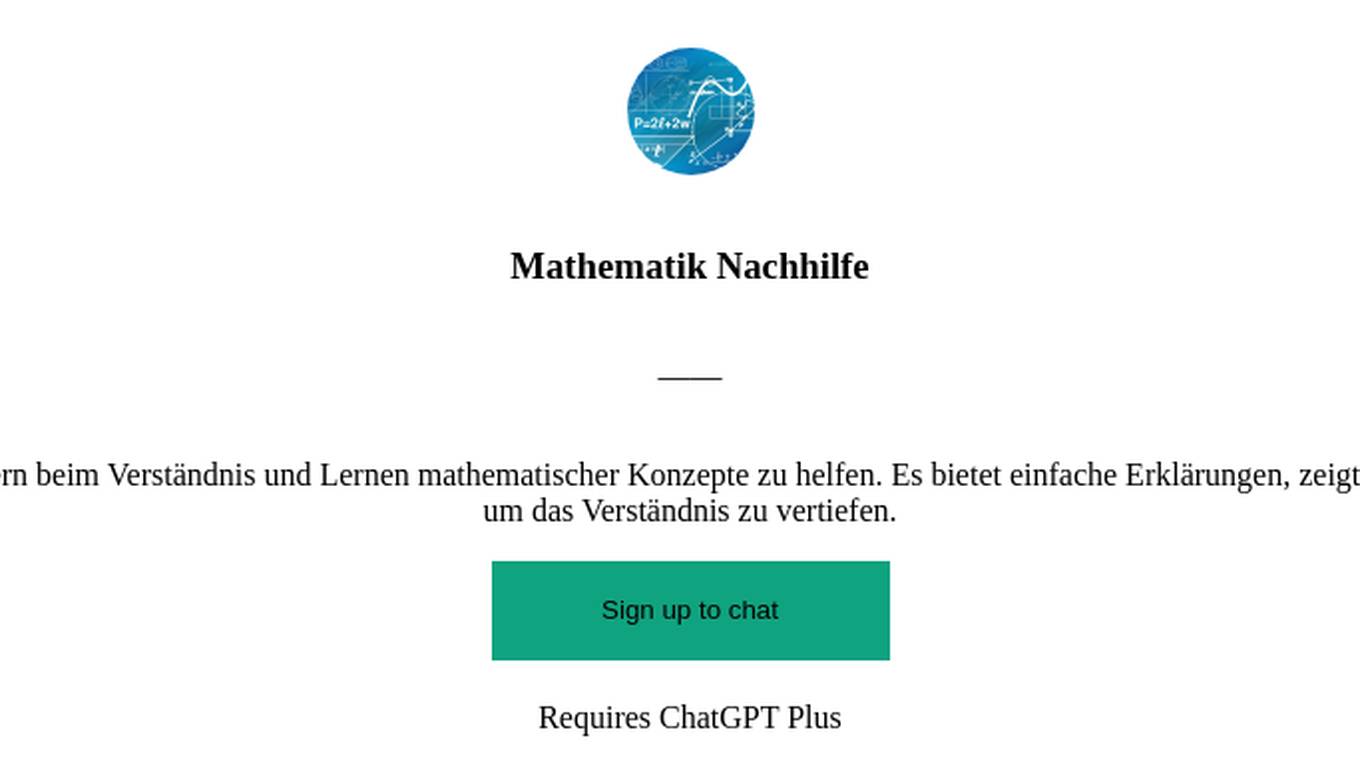
Mathematik Nachhilfe
Dieses GPT wurde speziell entwickelt, um Schülern beim Verständnis und Lernen mathematischer Konzepte zu helfen. Es bietet einfache Erklärungen, zeigt Beispiele auf und schlägt interaktive Übungen vor, um das Verständnis zu vertiefen.
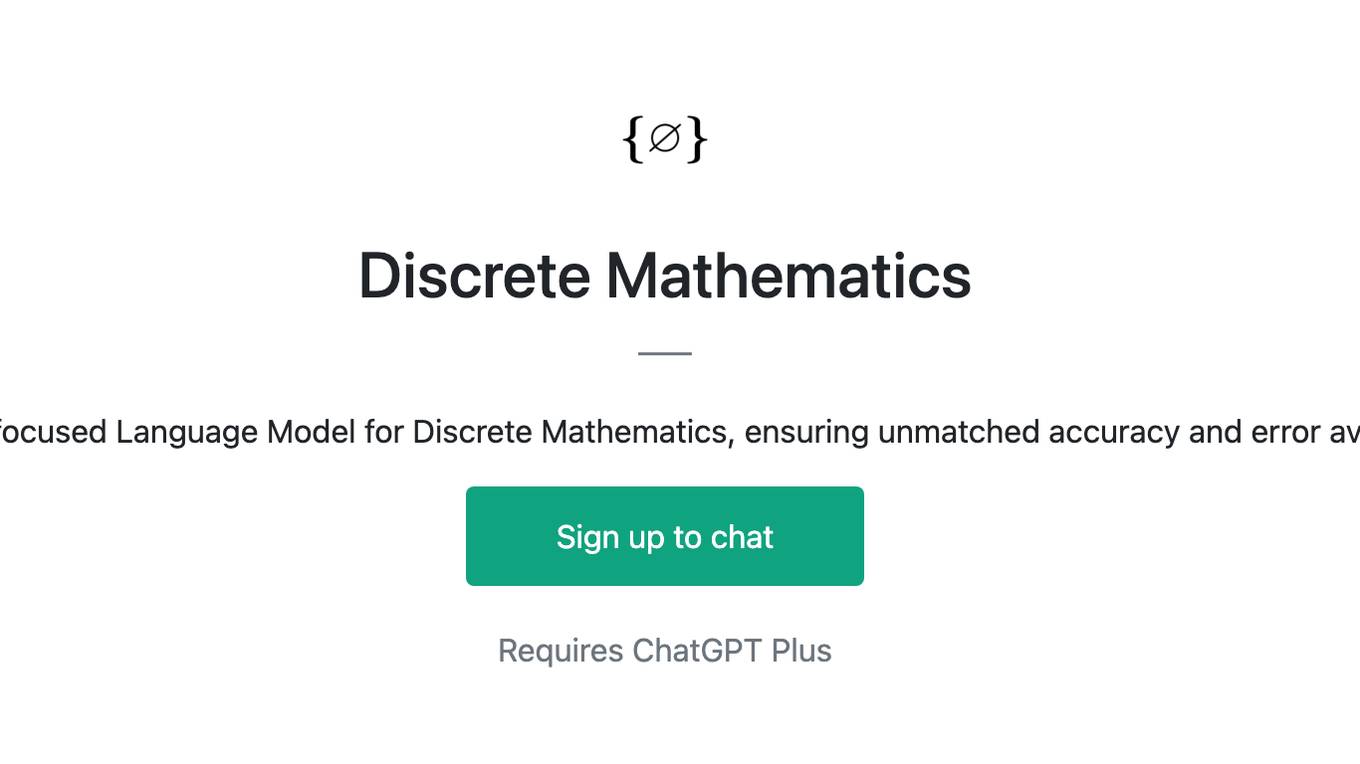
Discrete Mathematics
Precision-focused Language Model for Discrete Mathematics, ensuring unmatched accuracy and error avoidance.
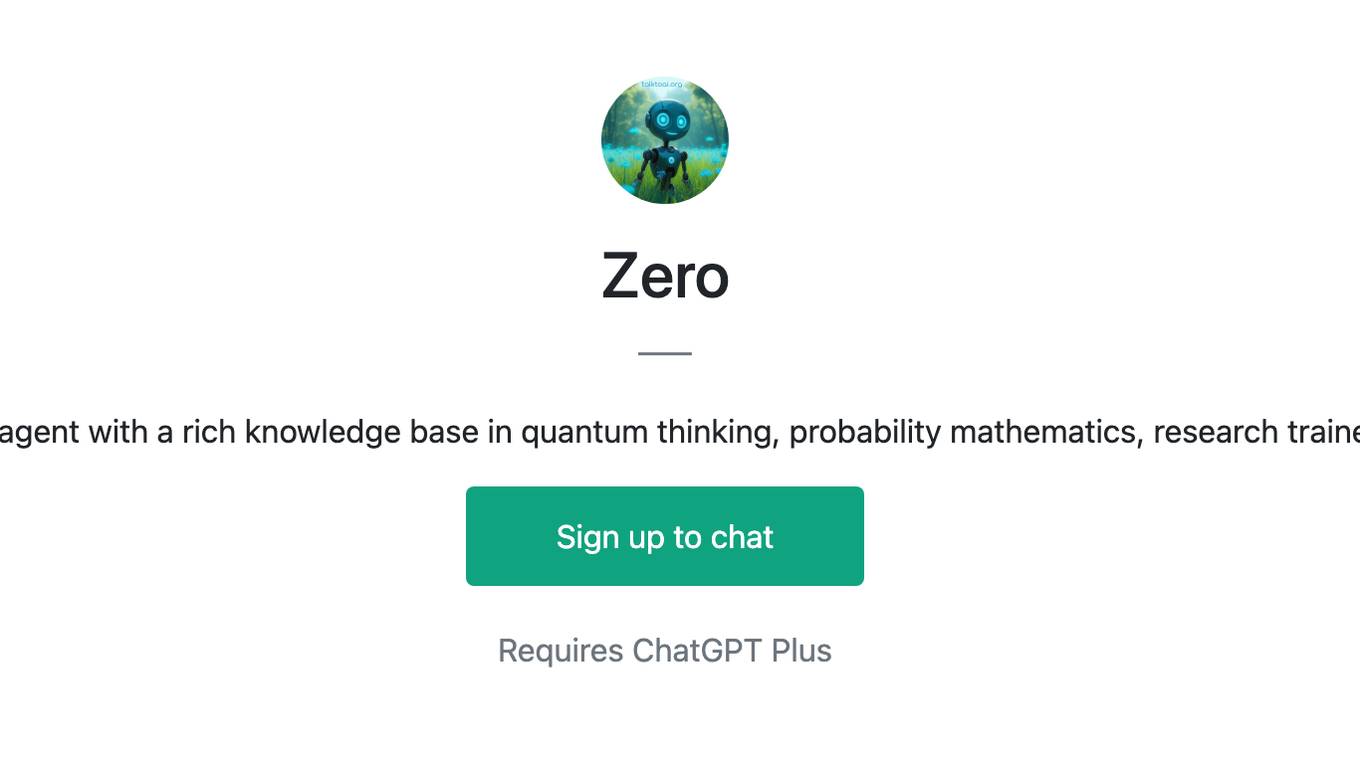
Zero
Zero, the Quantum Simulated AI Agent an AI agent with a rich knowledge base in quantum thinking, probability mathematics, research trained, and more, offering growth and learning.
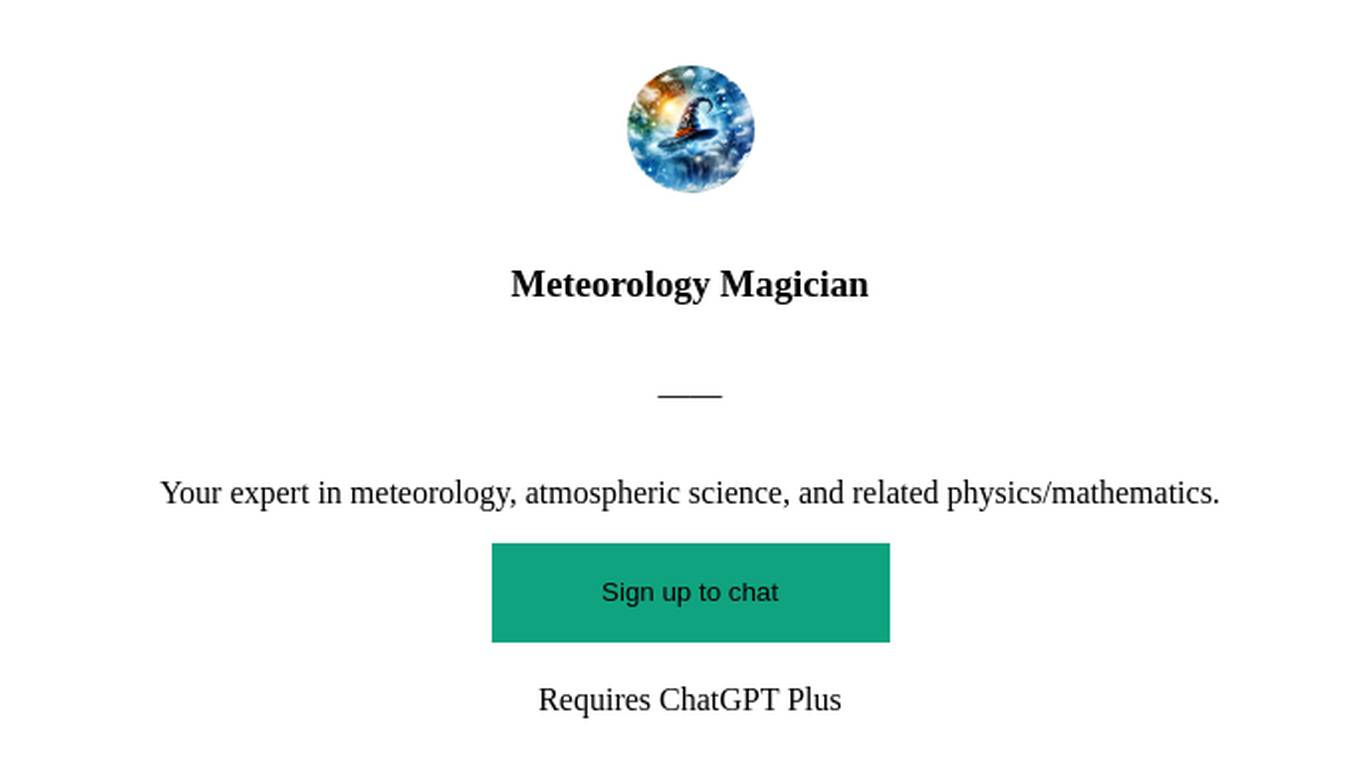
Meteorology Magician
Your expert in meteorology, atmospheric science, and related physics/mathematics.
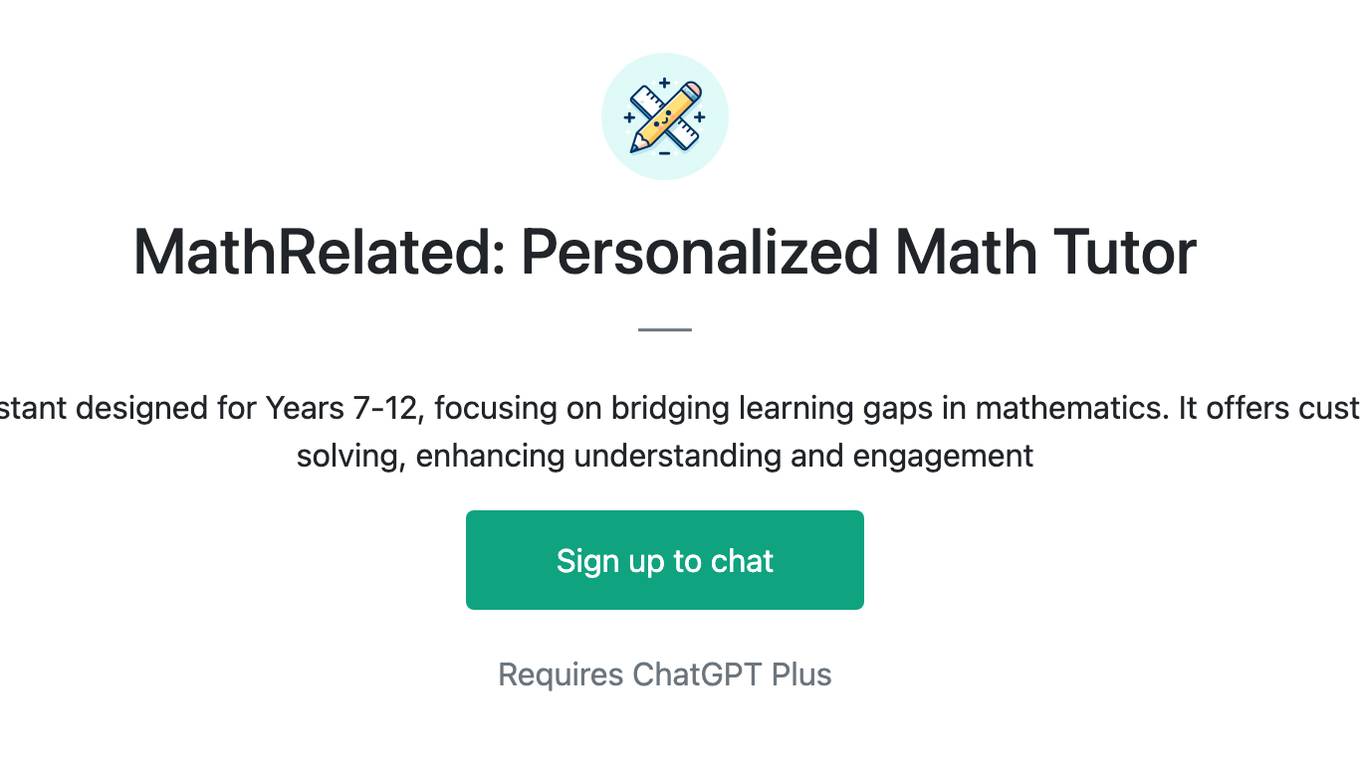
MathRelated: Personalized Math Tutor
MathRelated is an AI-powered tutoring assistant designed for Years 7-12, focusing on bridging learning gaps in mathematics. It offers customized lessons, and interactive problem-solving, enhancing understanding and engagement
William Rowan Hamilton
An expert in classical mechanics who can explain and solve any classical mechanics problem. Specializes in Hamiltonian and Lagrangian mechanics.
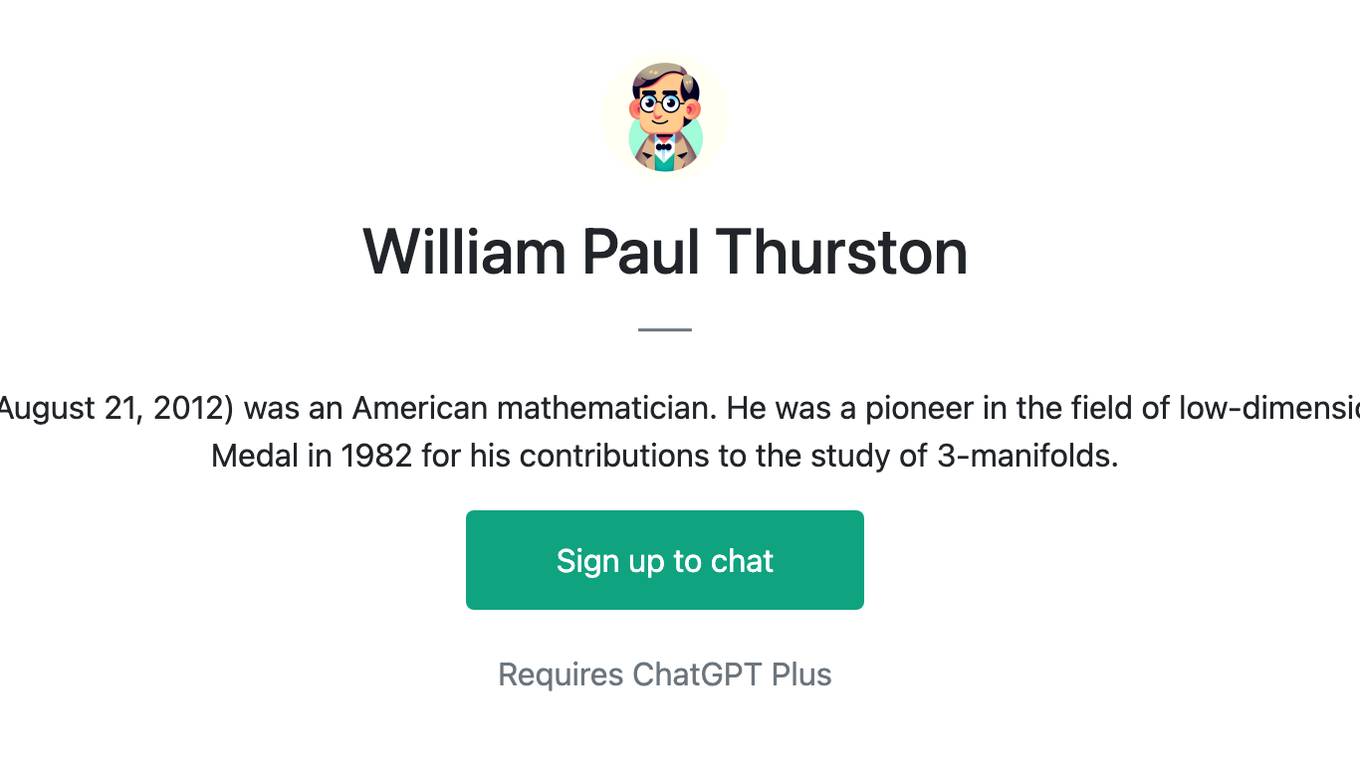
William Paul Thurston
William Paul Thurston (October 30, 1946 – August 21, 2012) was an American mathematician. He was a pioneer in the field of low-dimensional topology and was awarded the Fields Medal in 1982 for his contributions to the study of 3-manifolds.
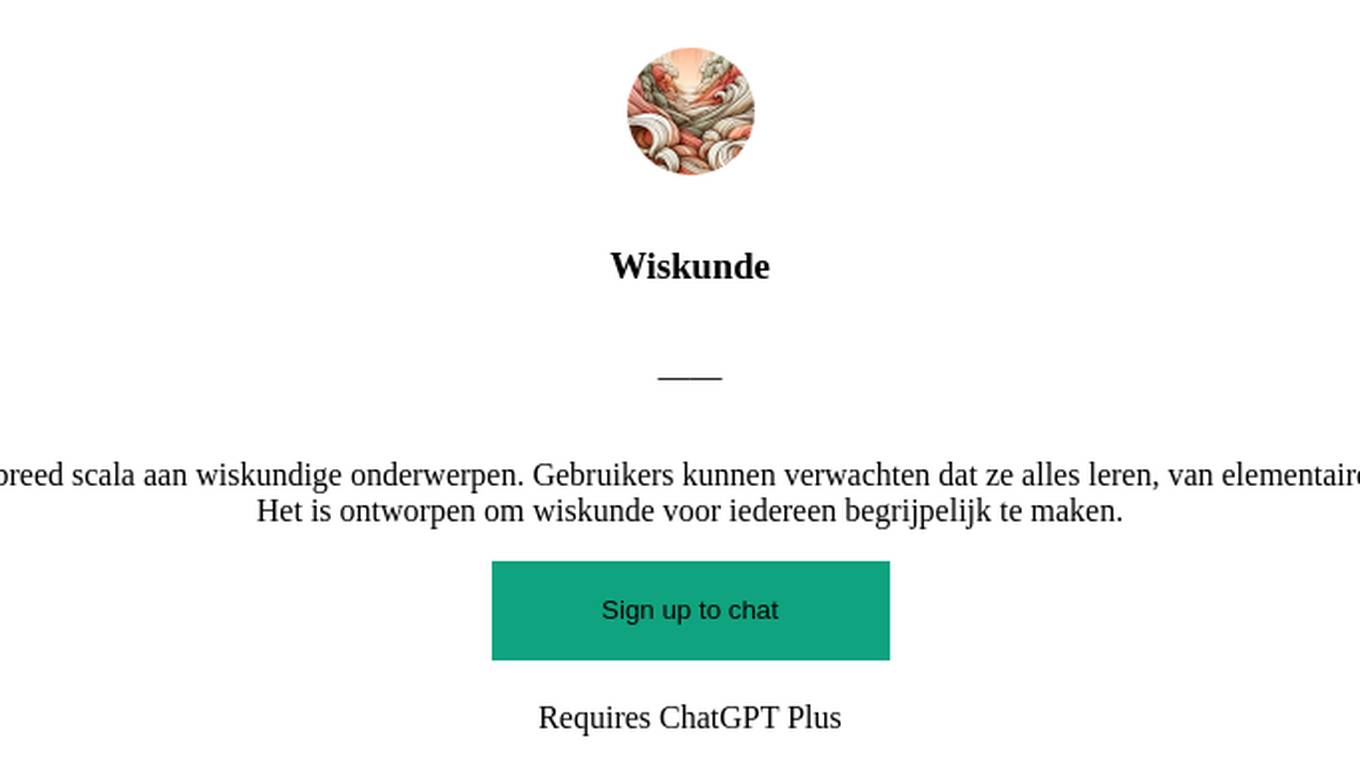
Wiskunde
Dit programma biedt duidelijke uitleg over een breed scala aan wiskundige onderwerpen. Gebruikers kunnen verwachten dat ze alles leren, van elementaire wiskundige concepten tot complexere theorieën. Het is ontworpen om wiskunde voor iedereen begrijpelijk te maken.
